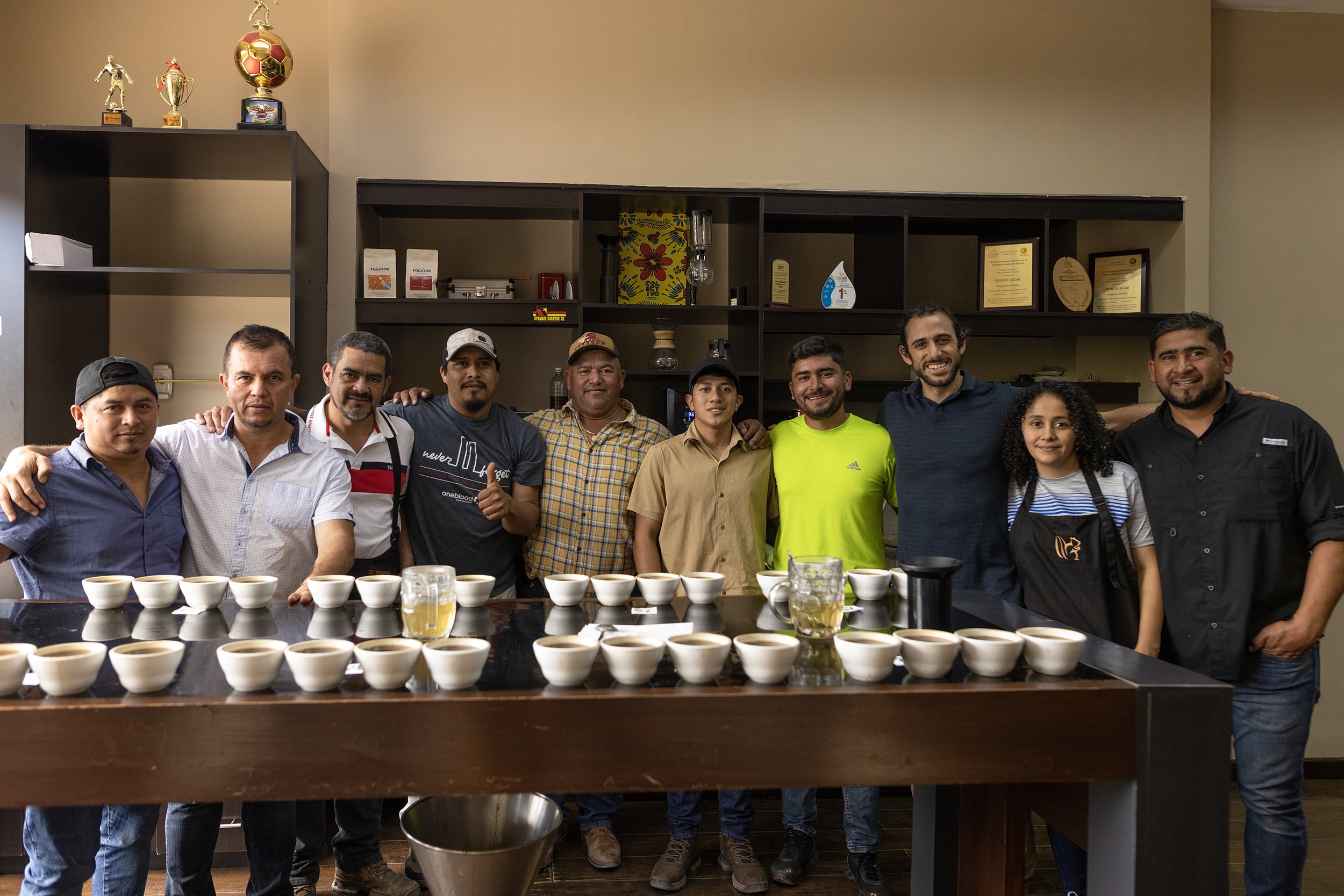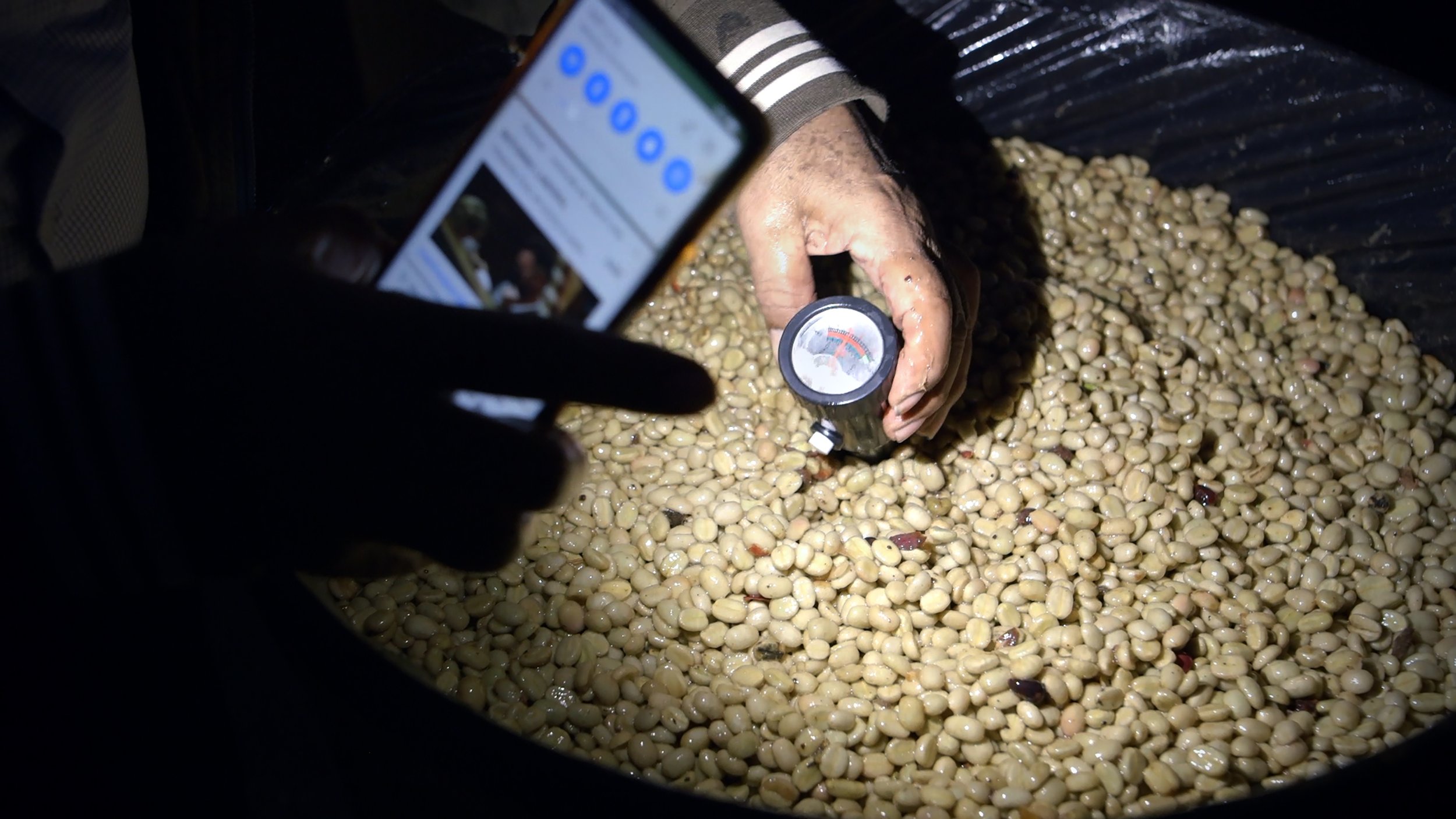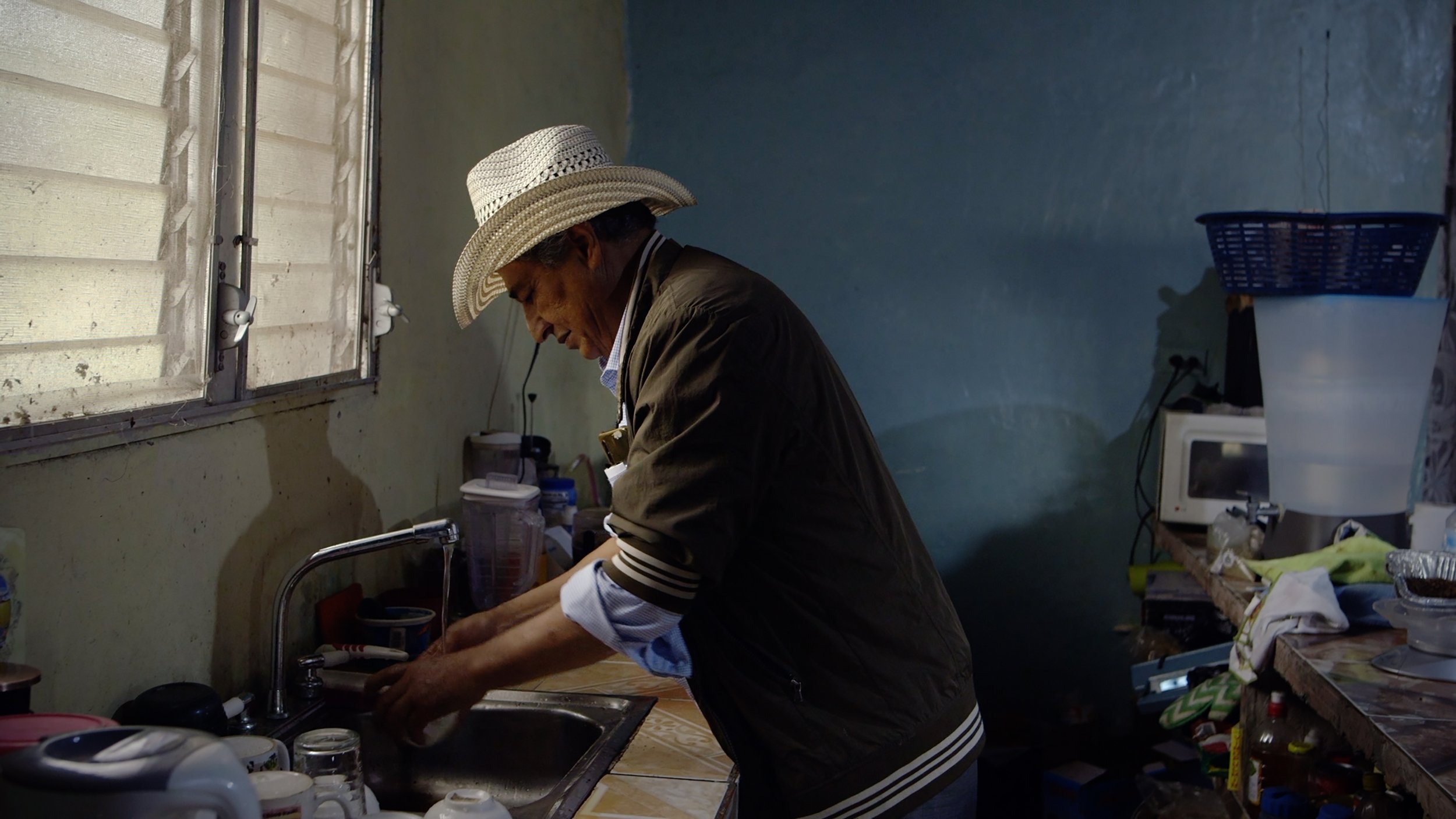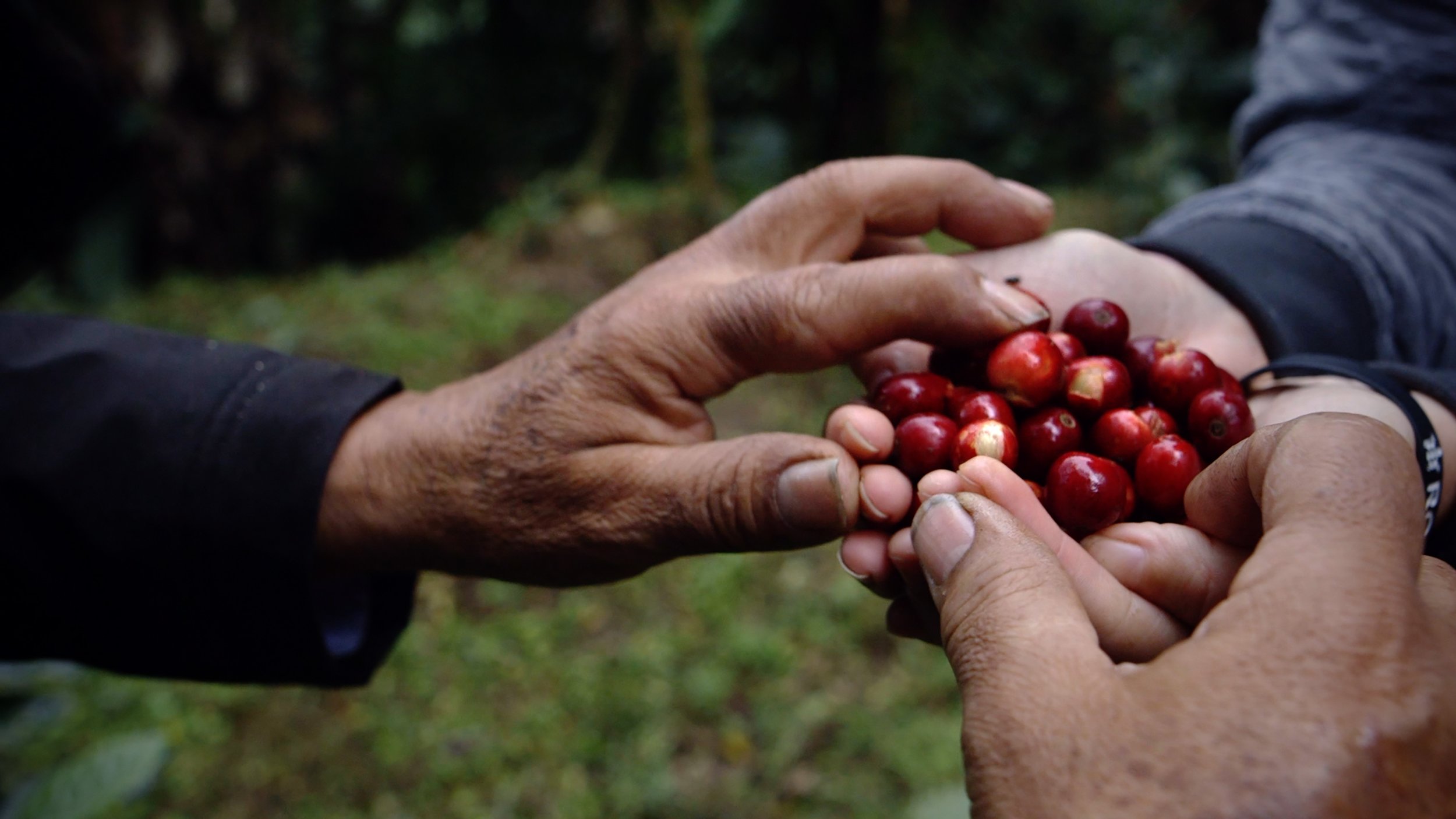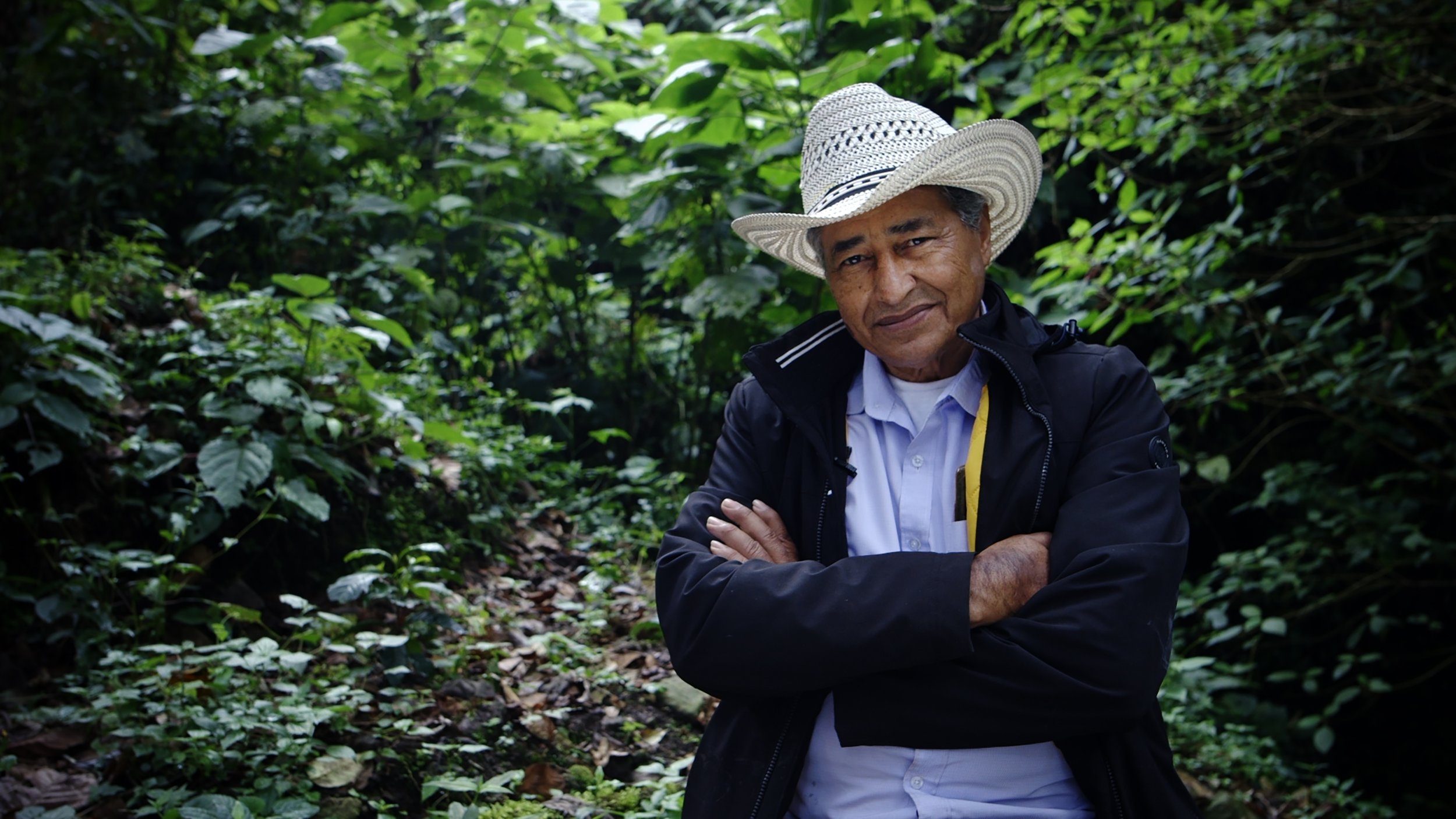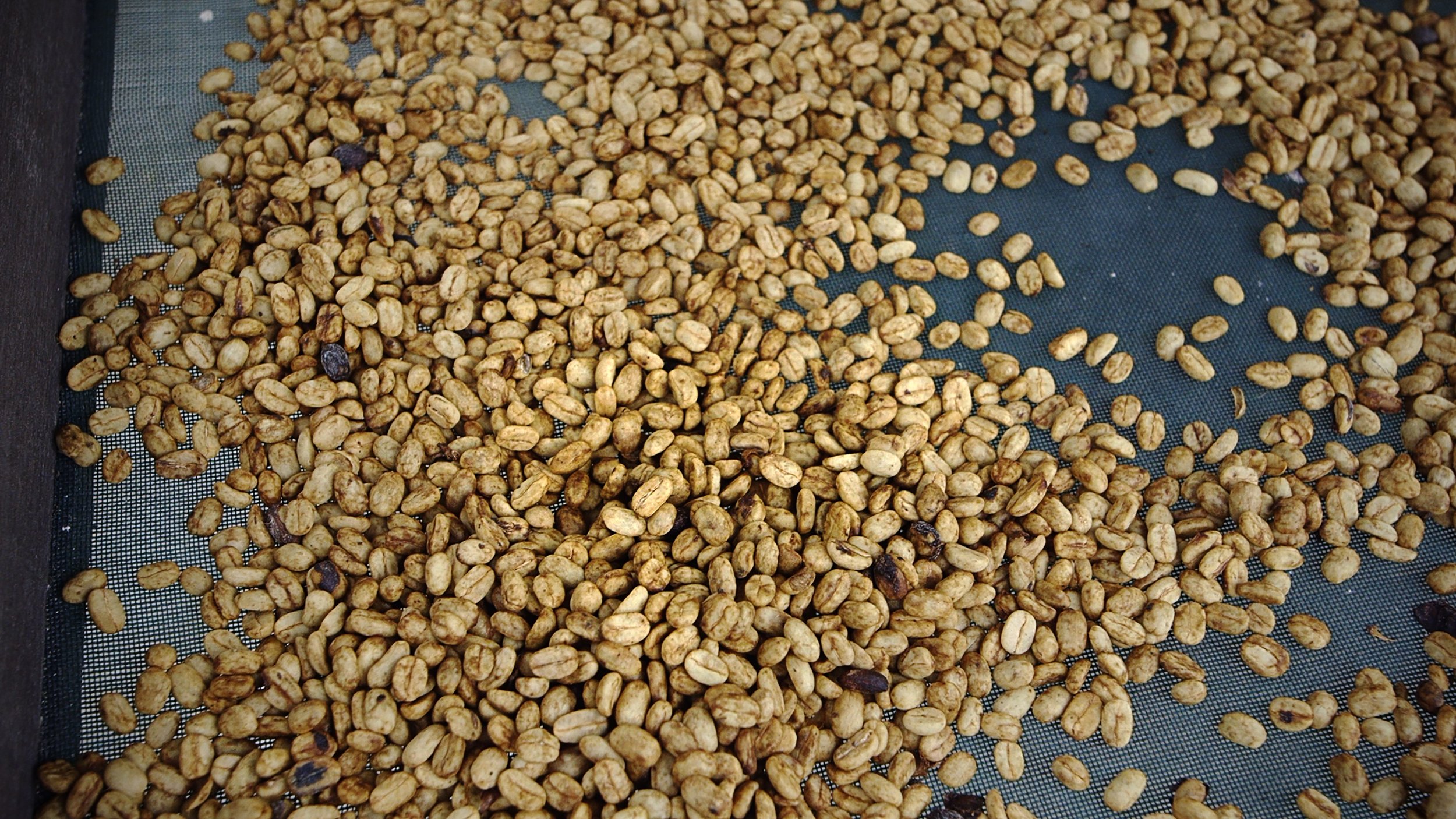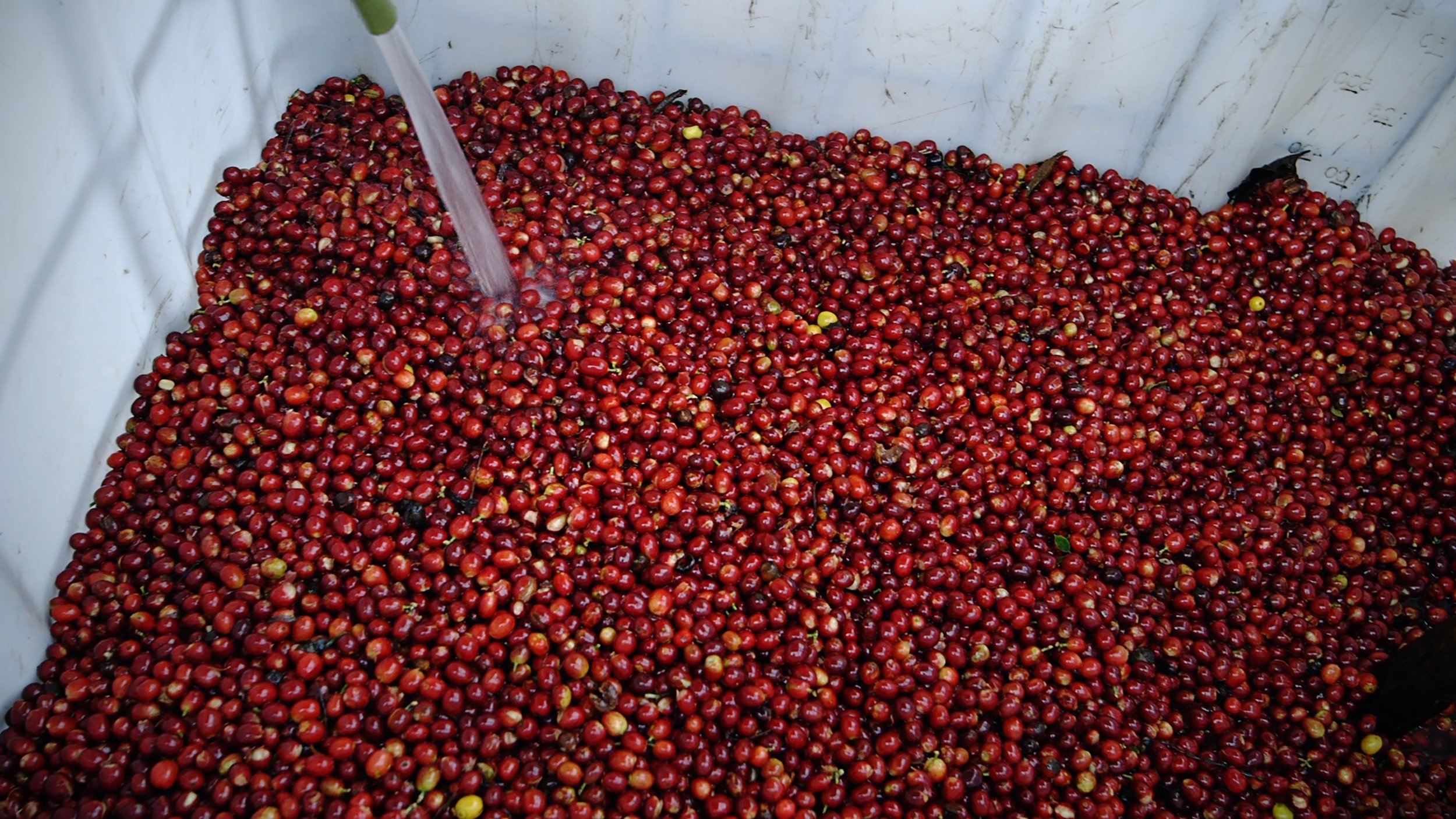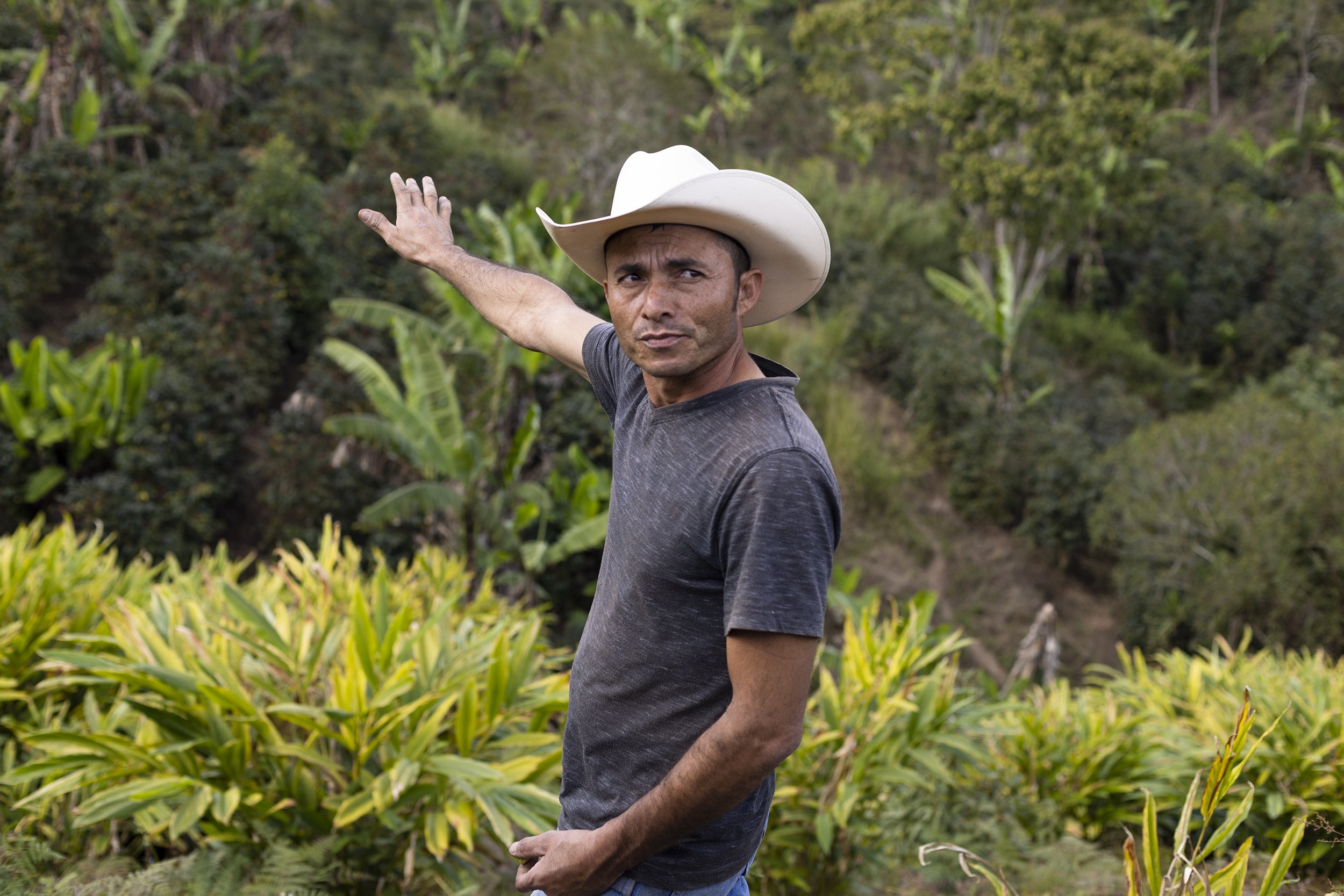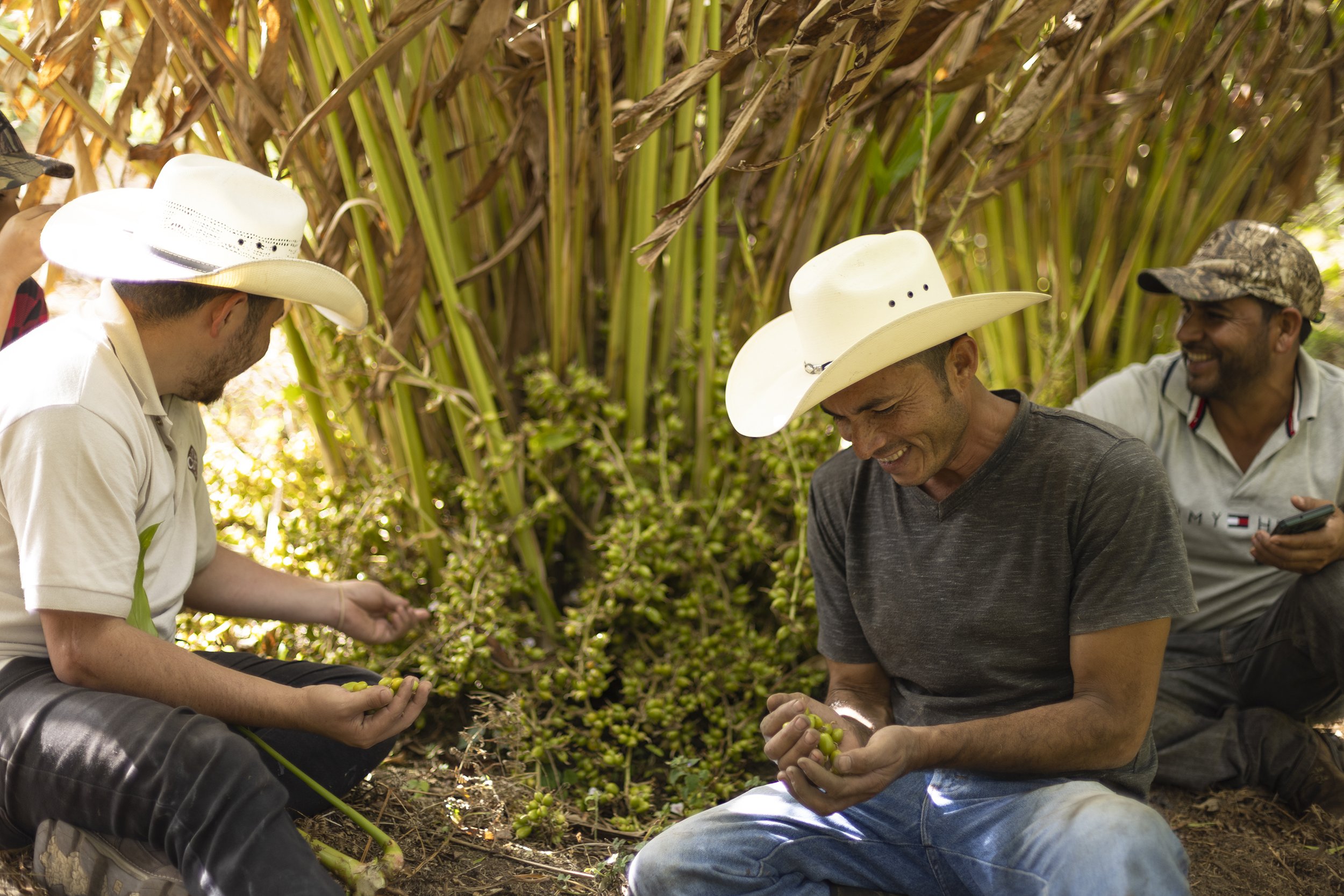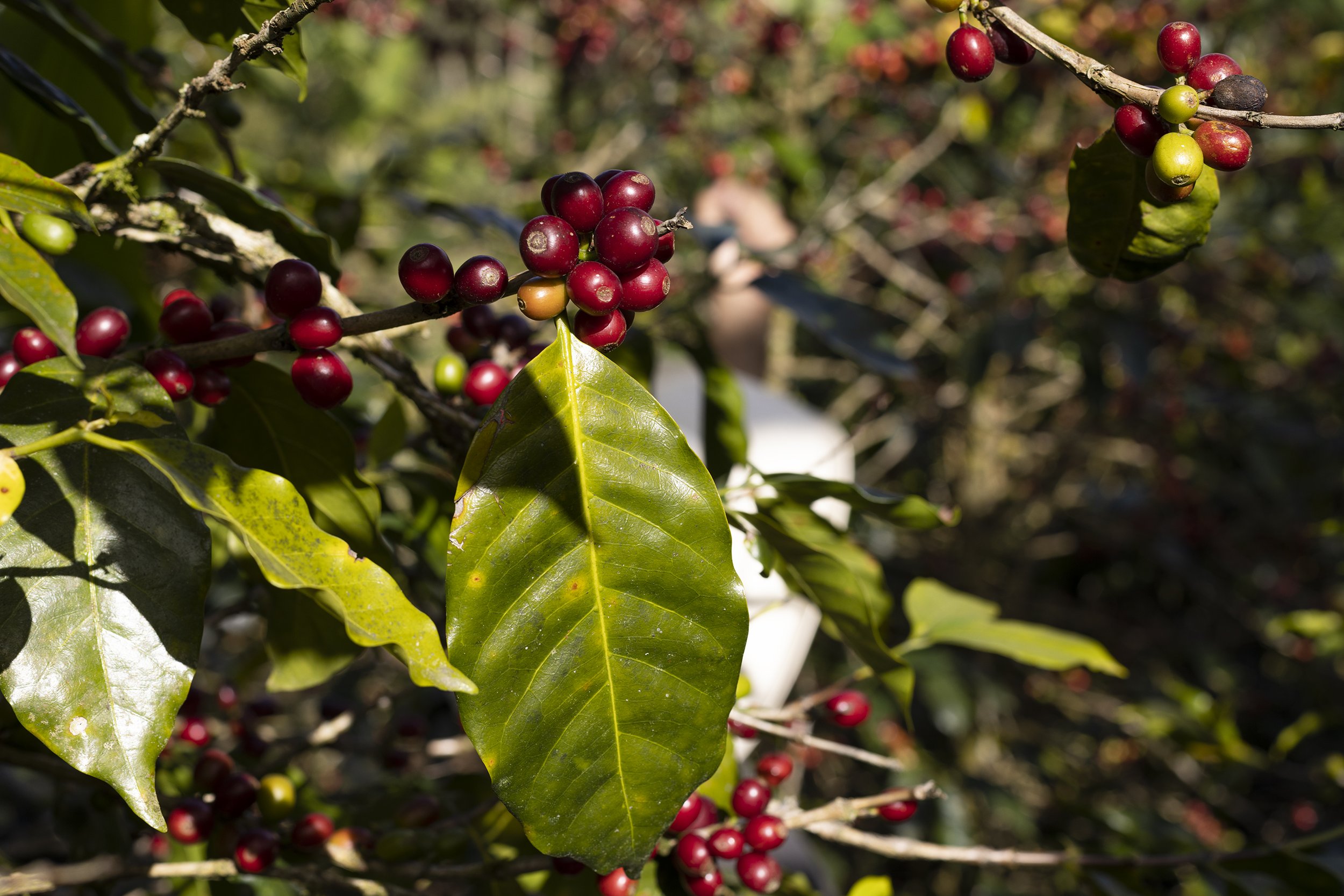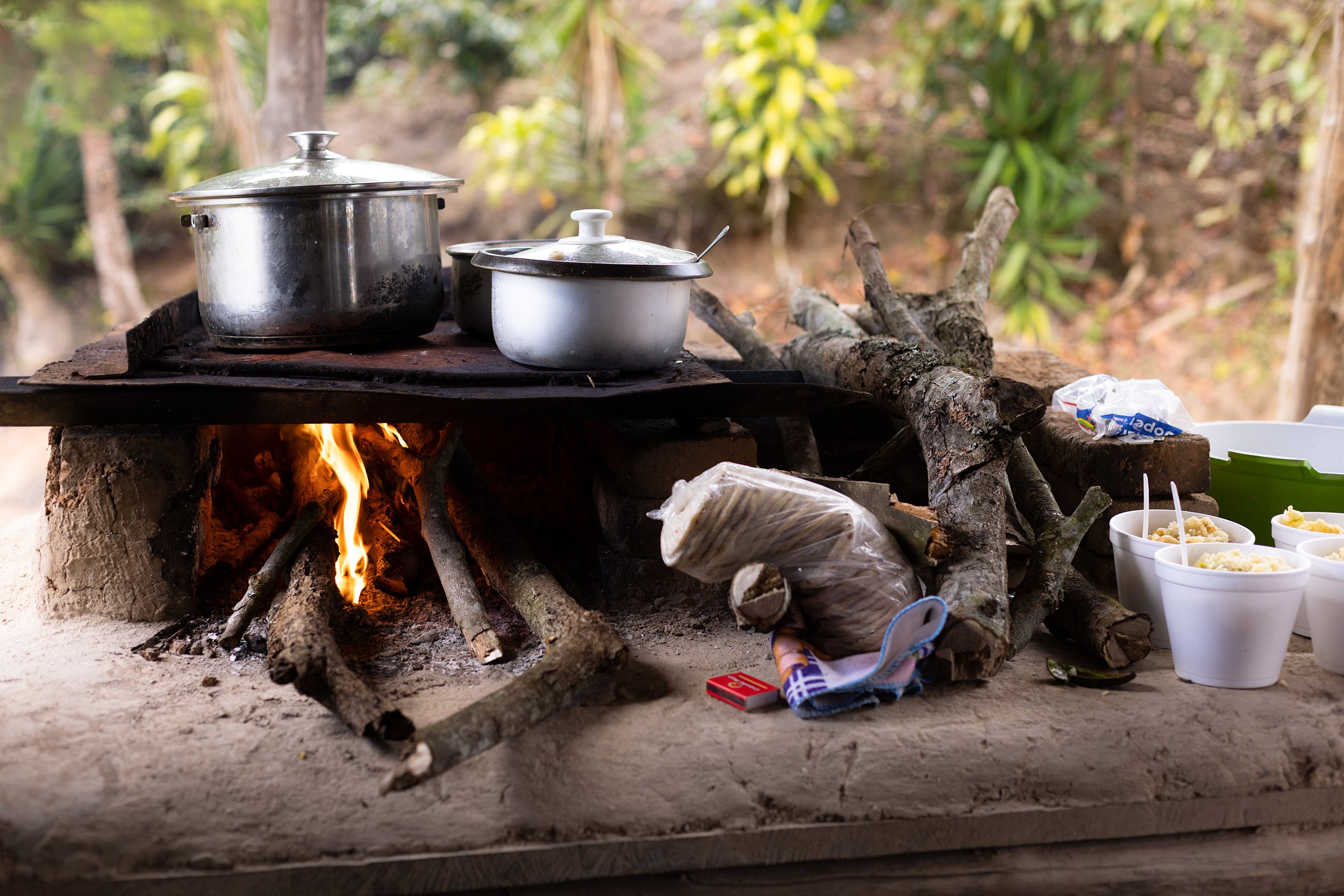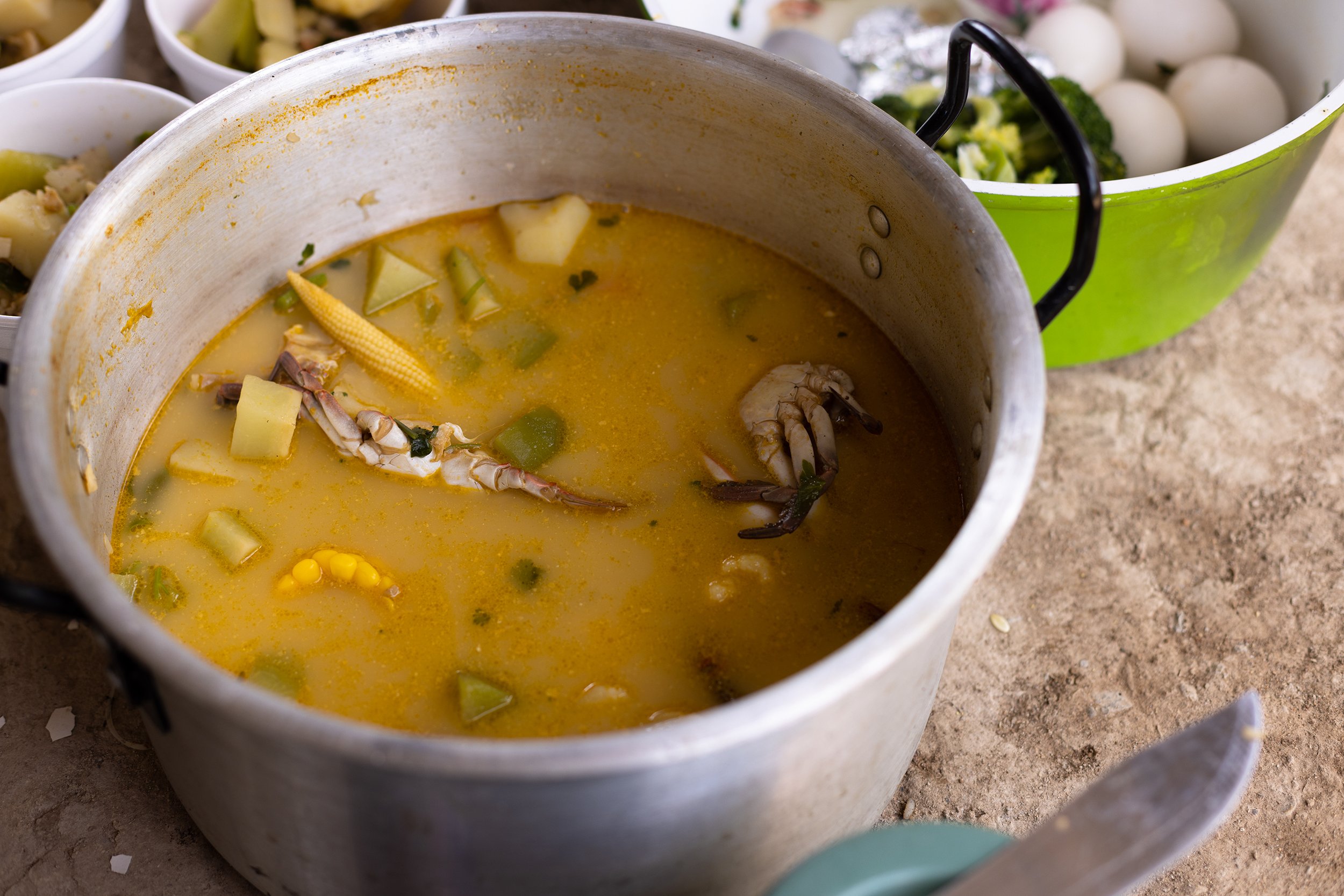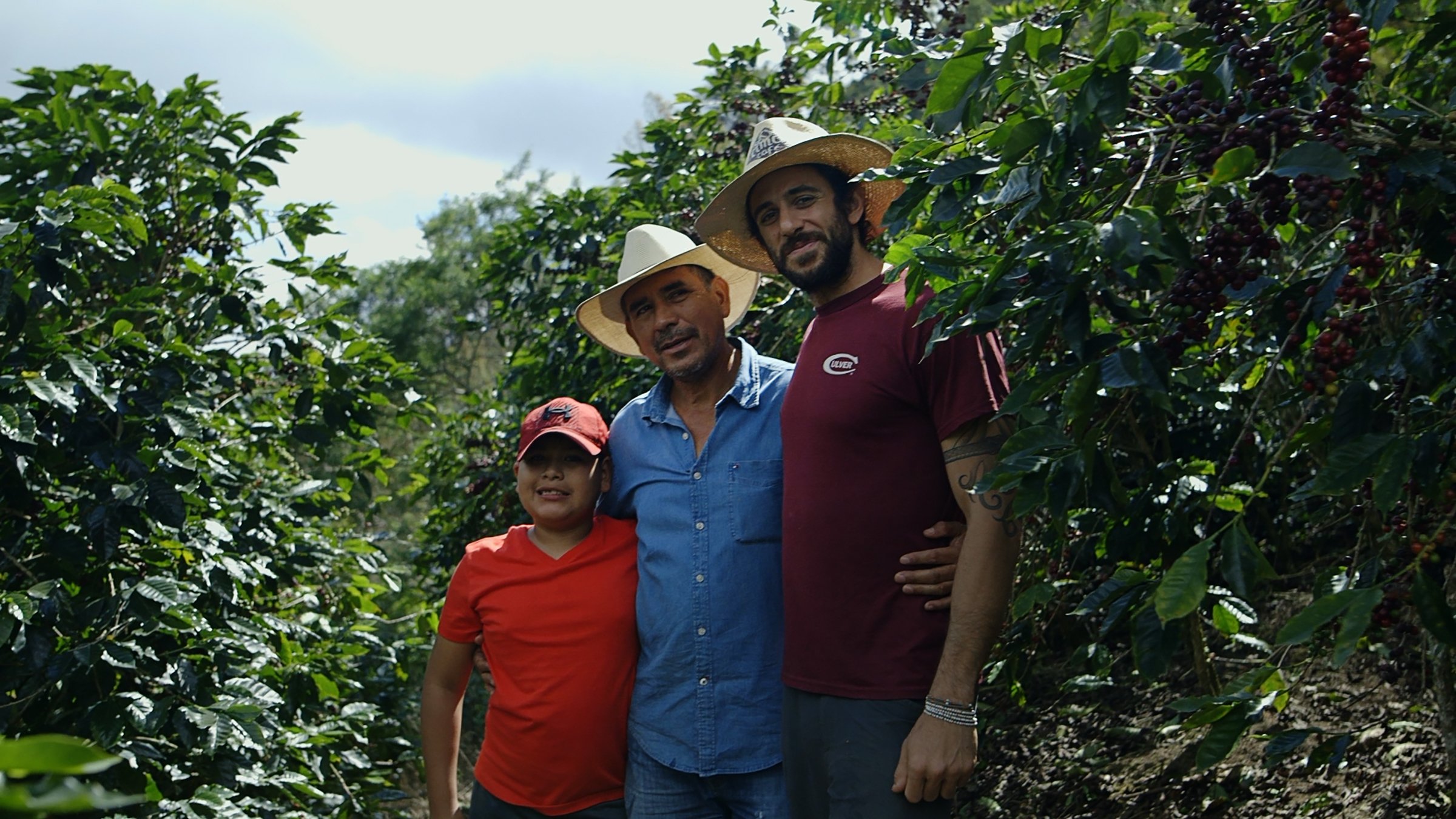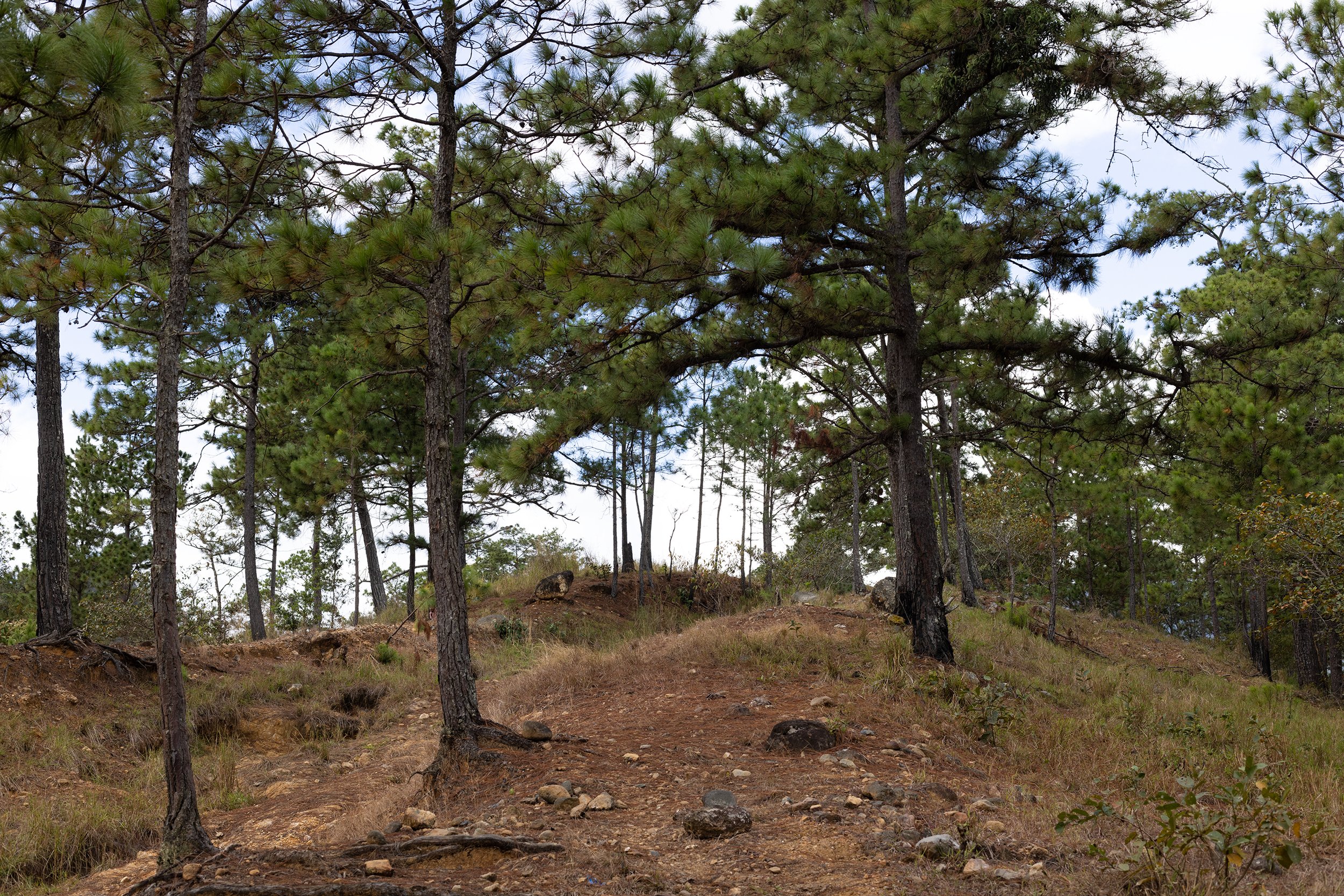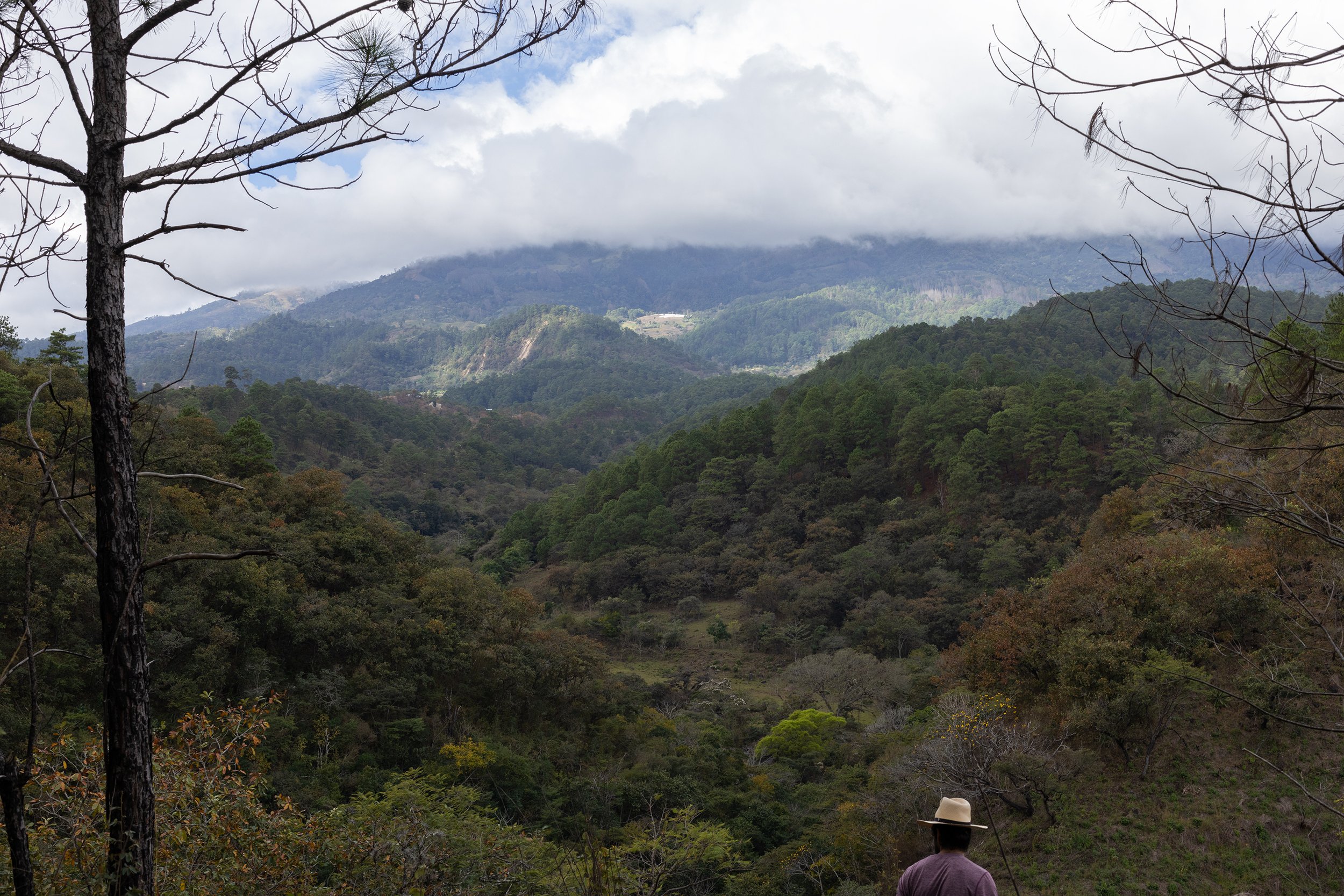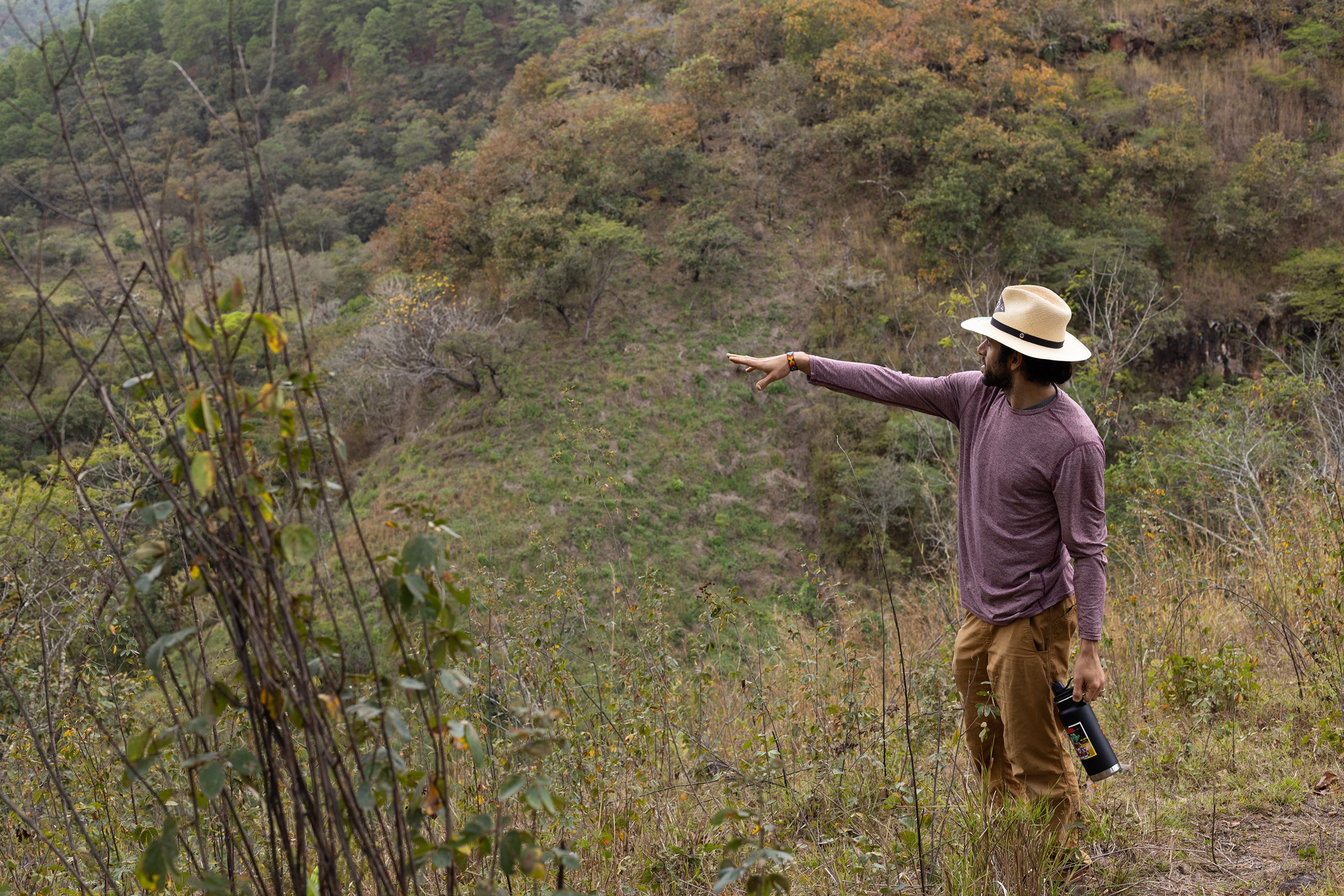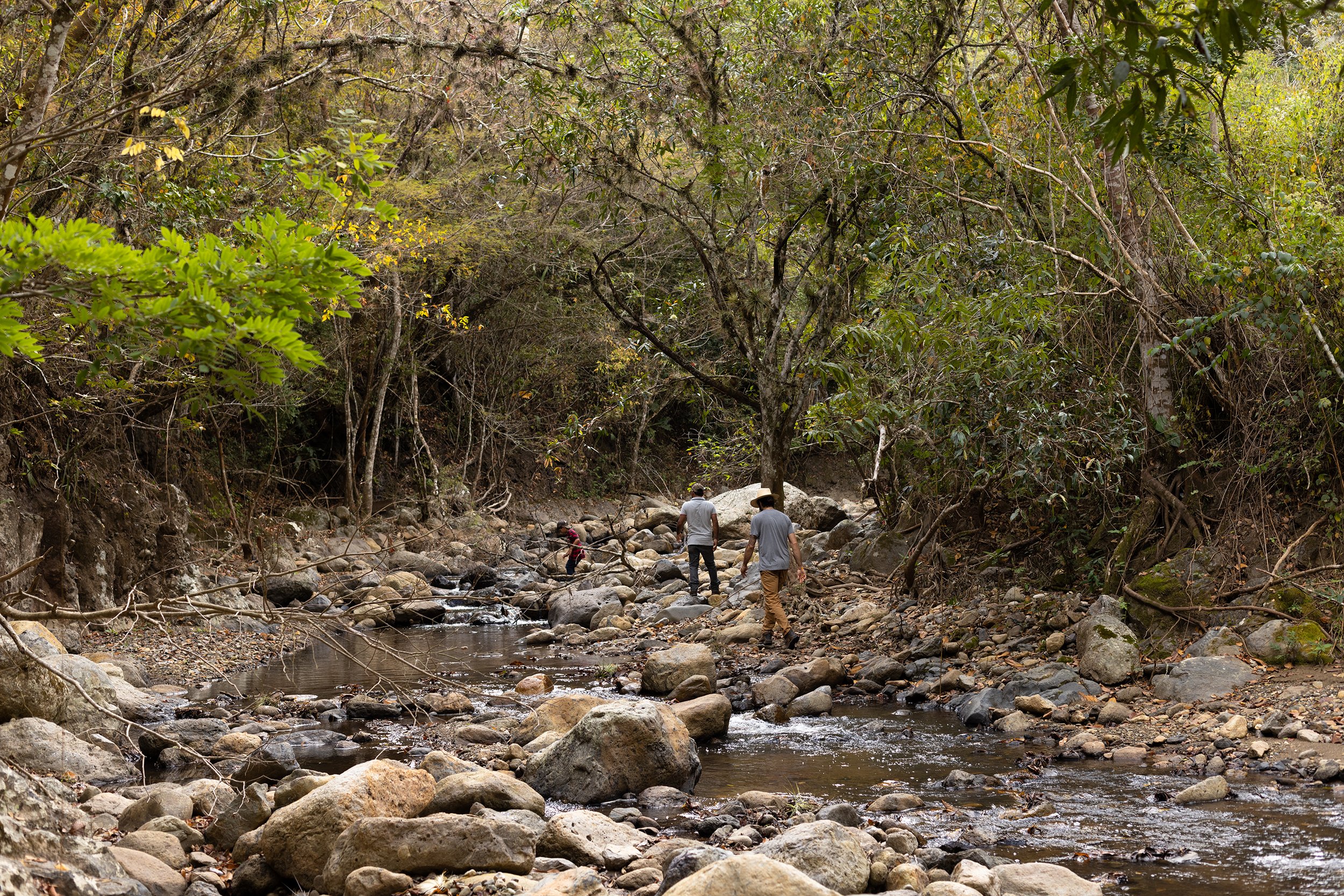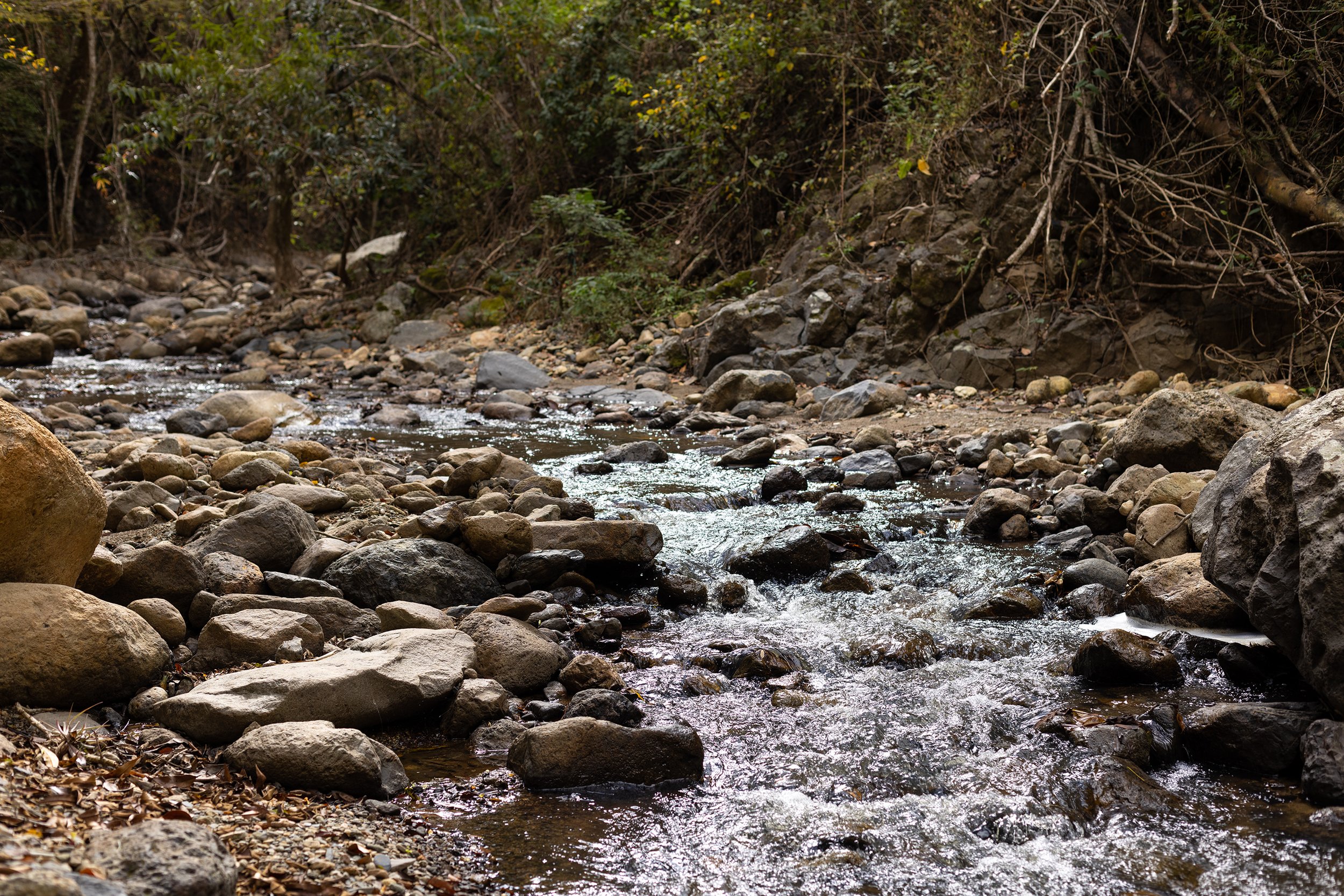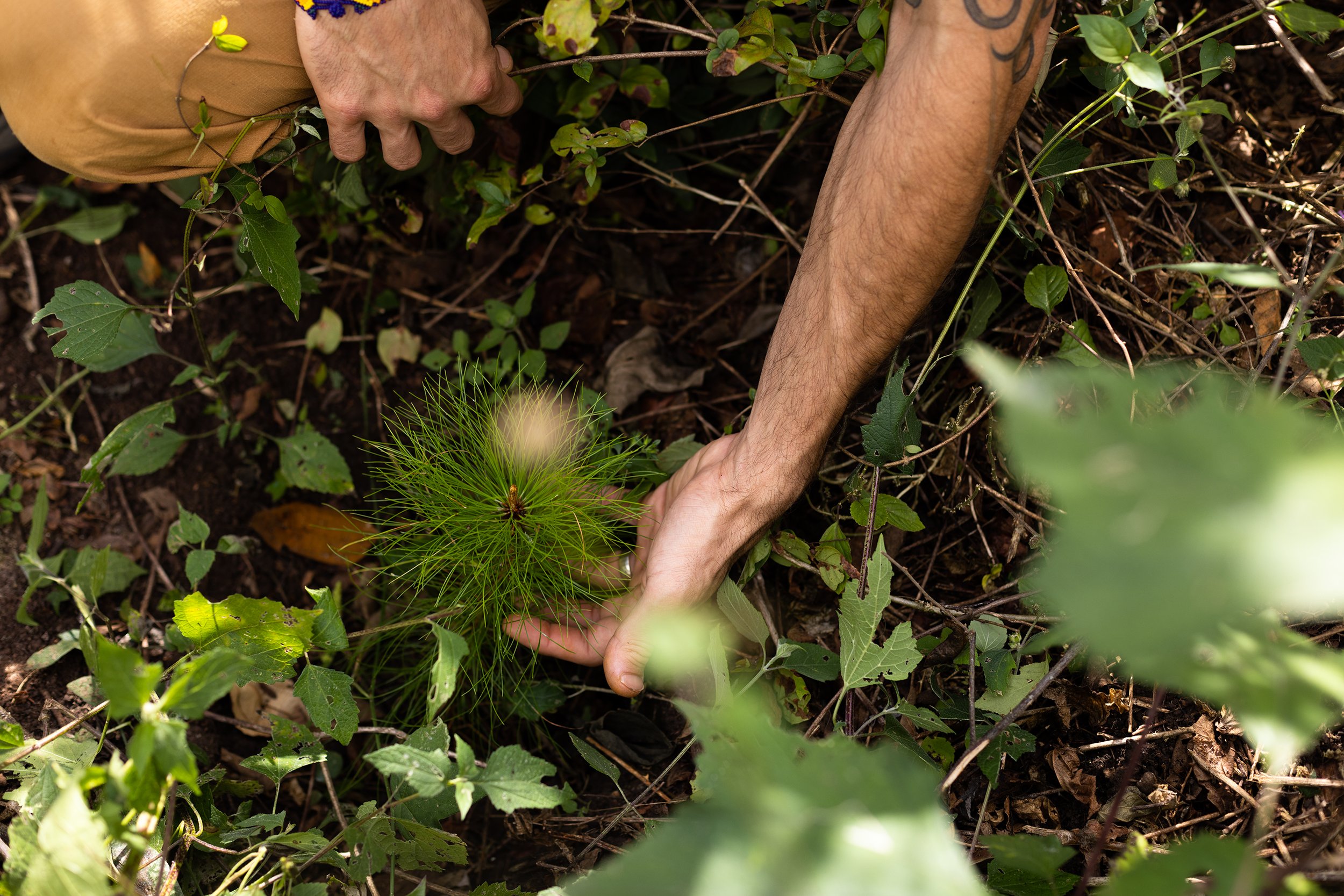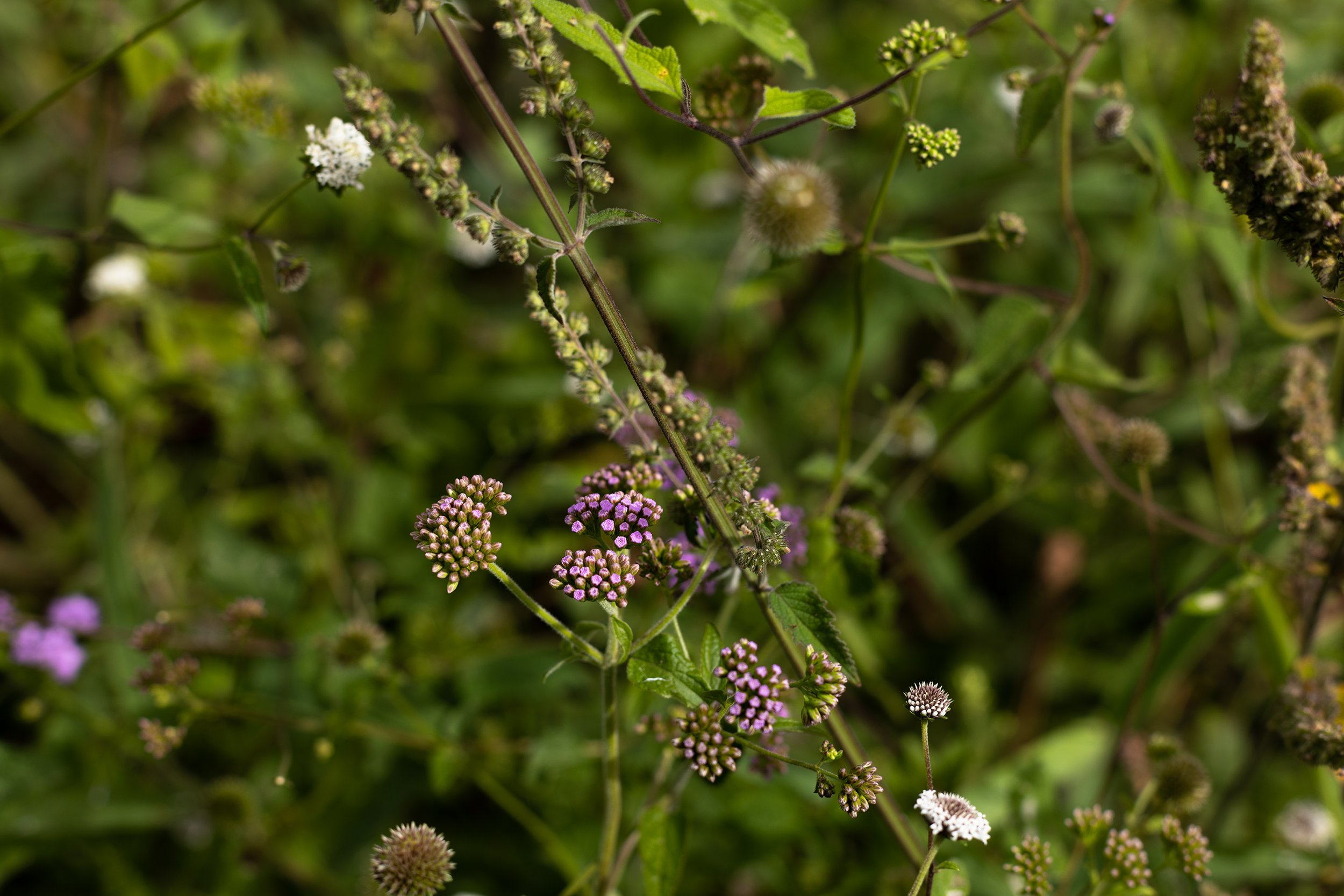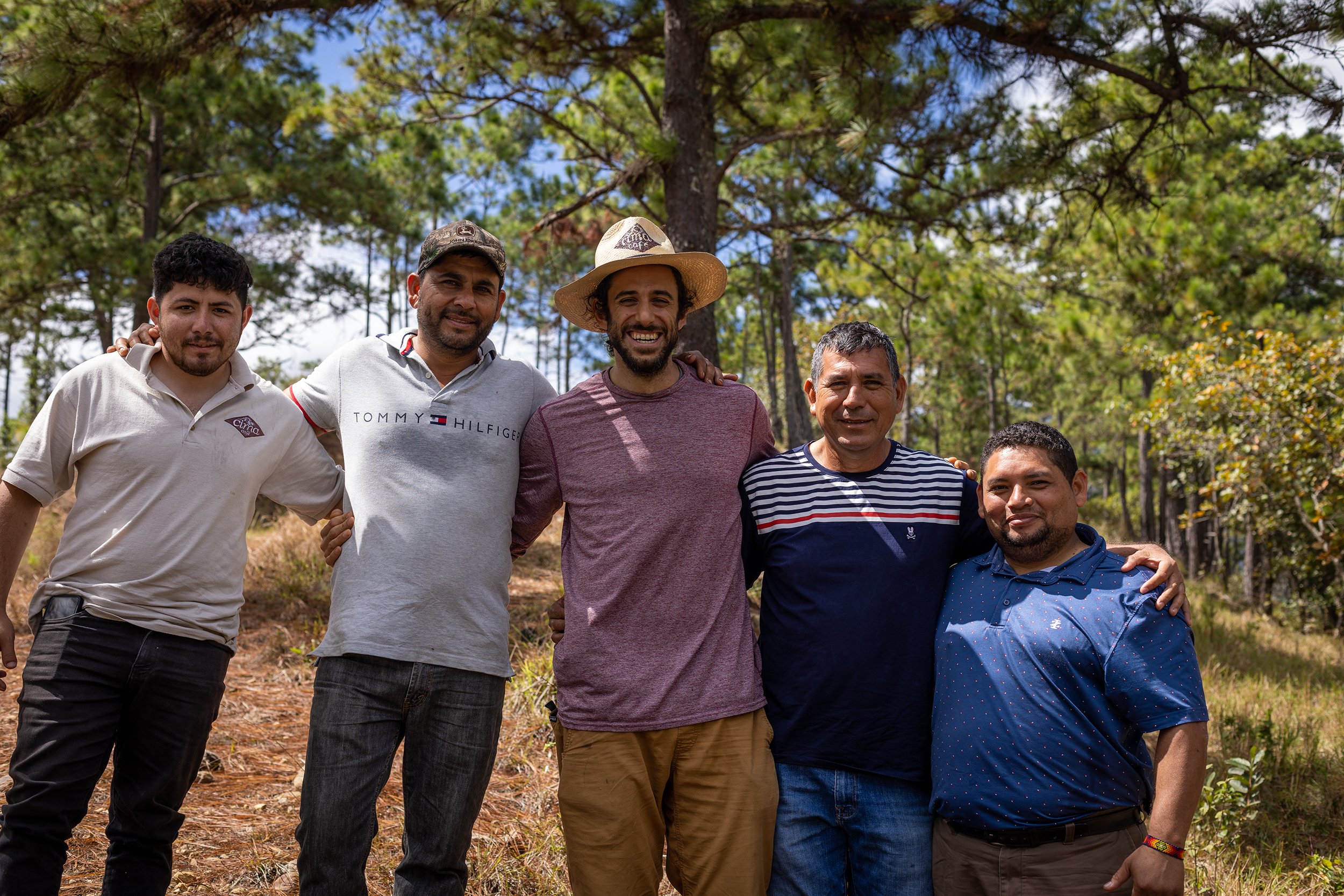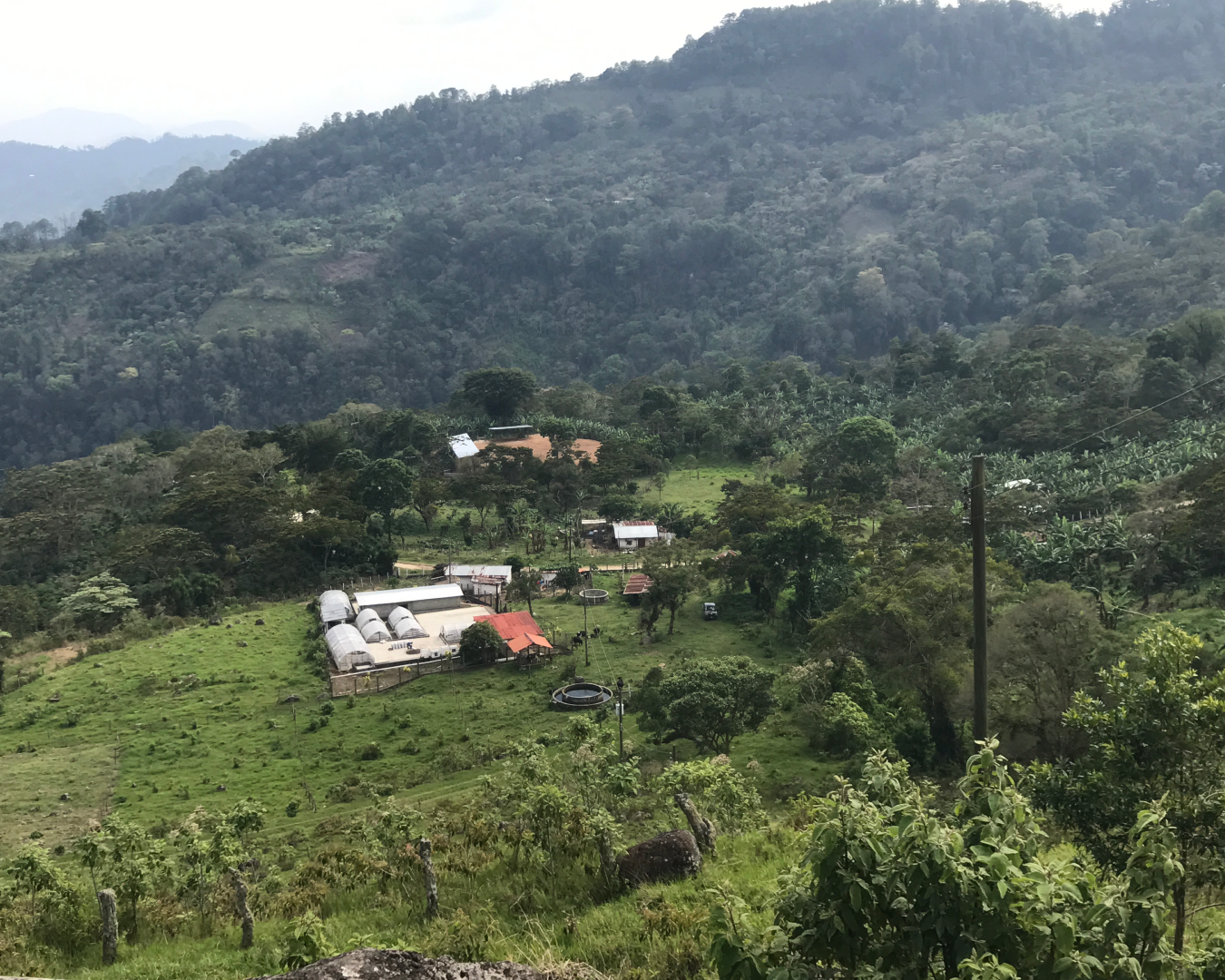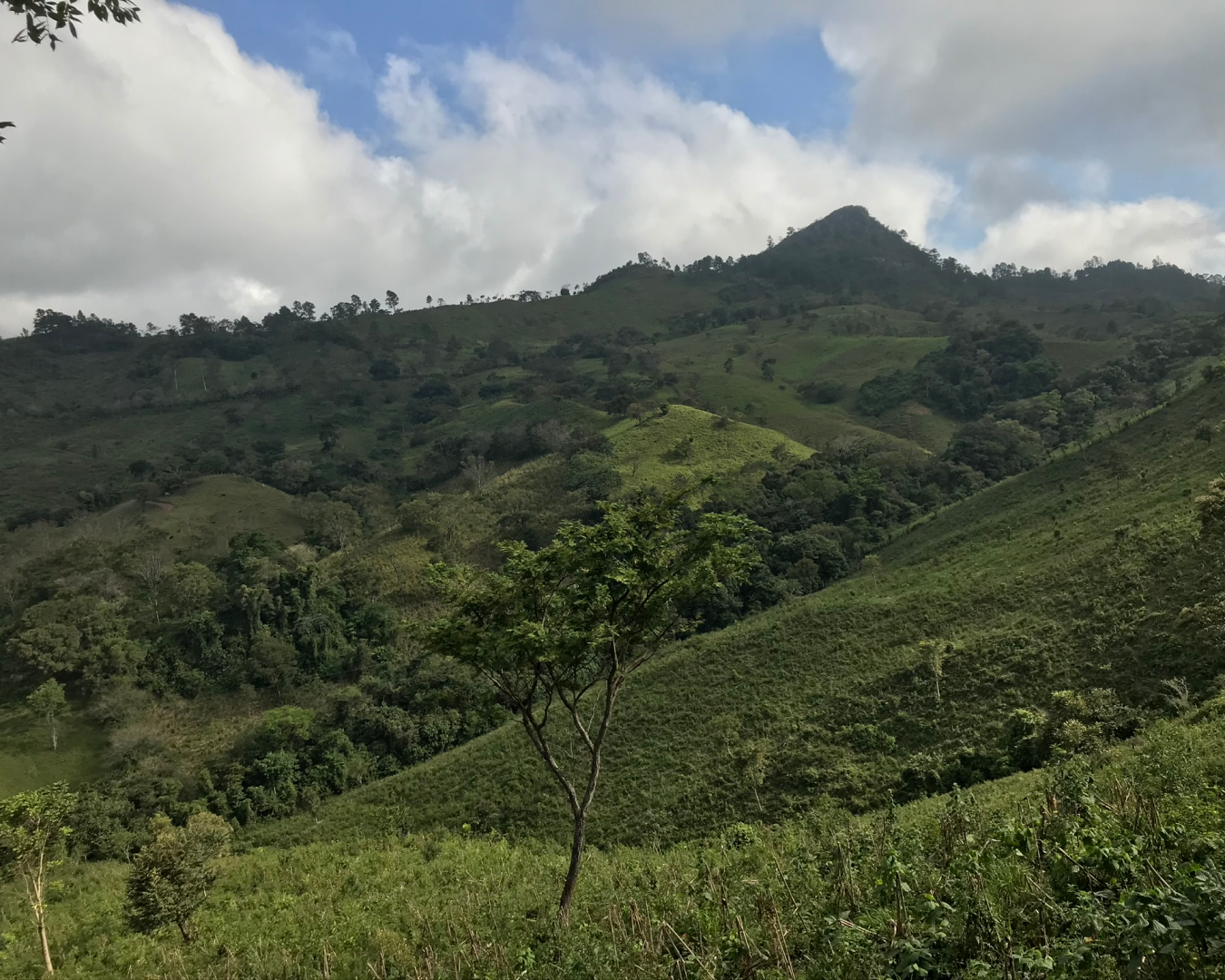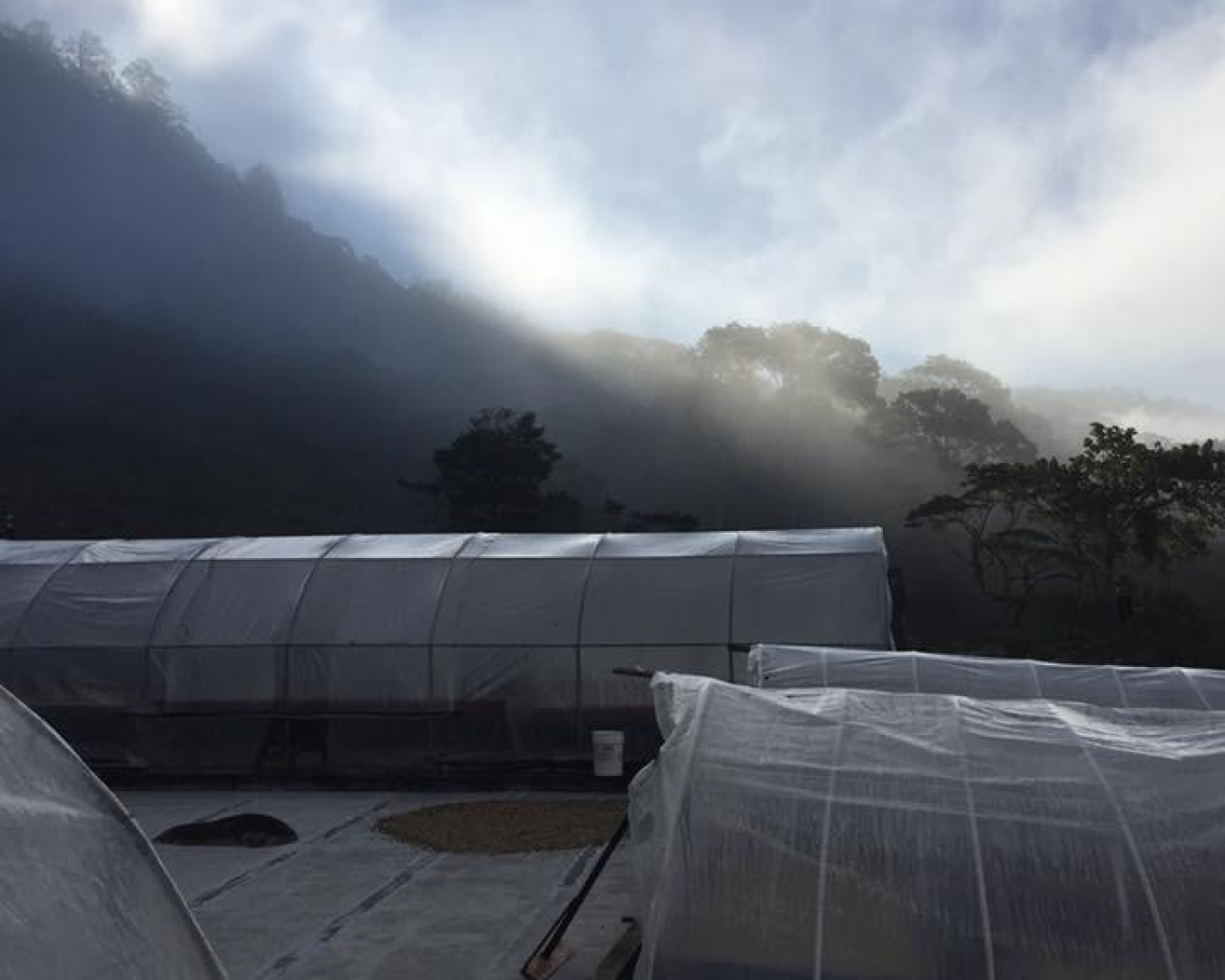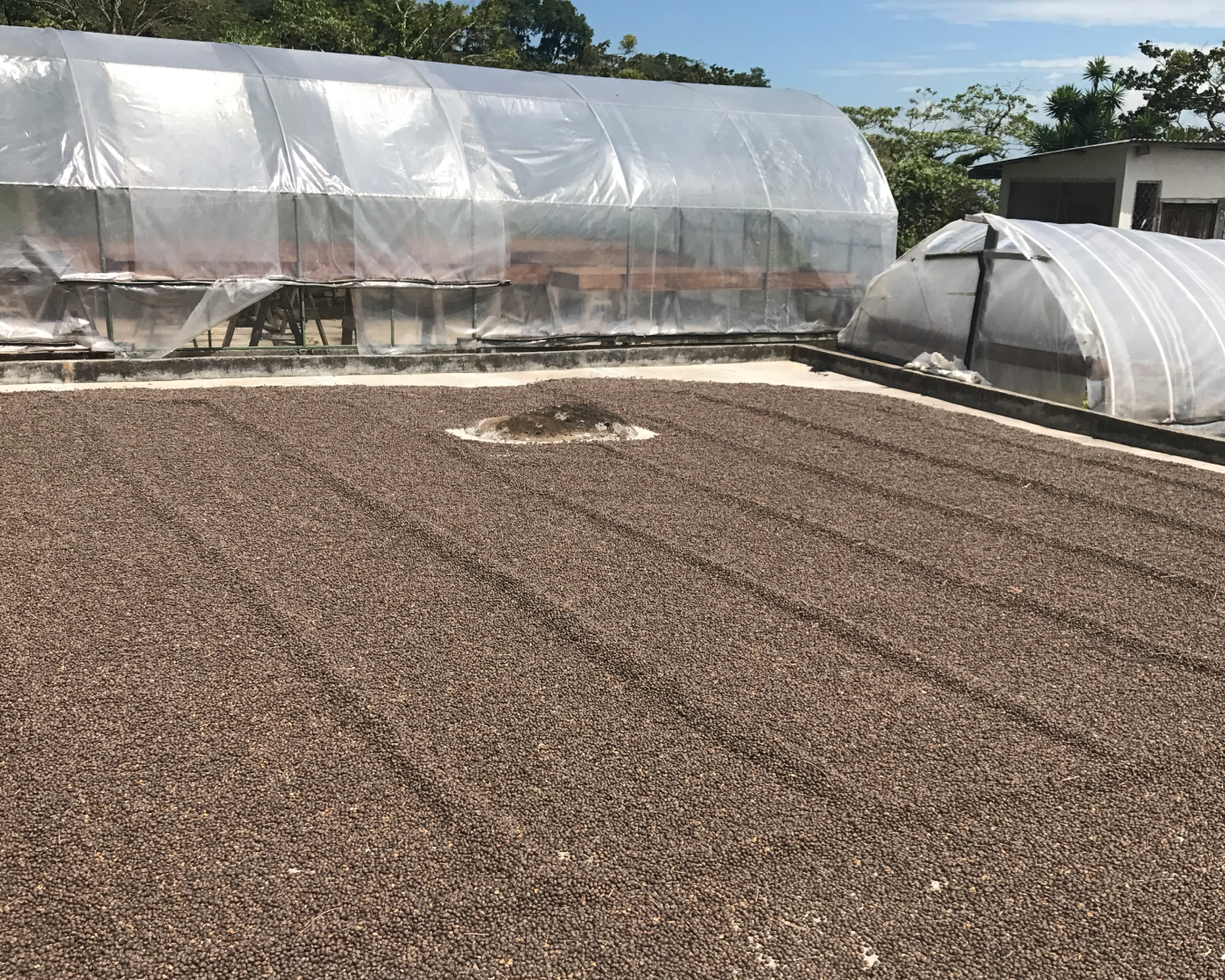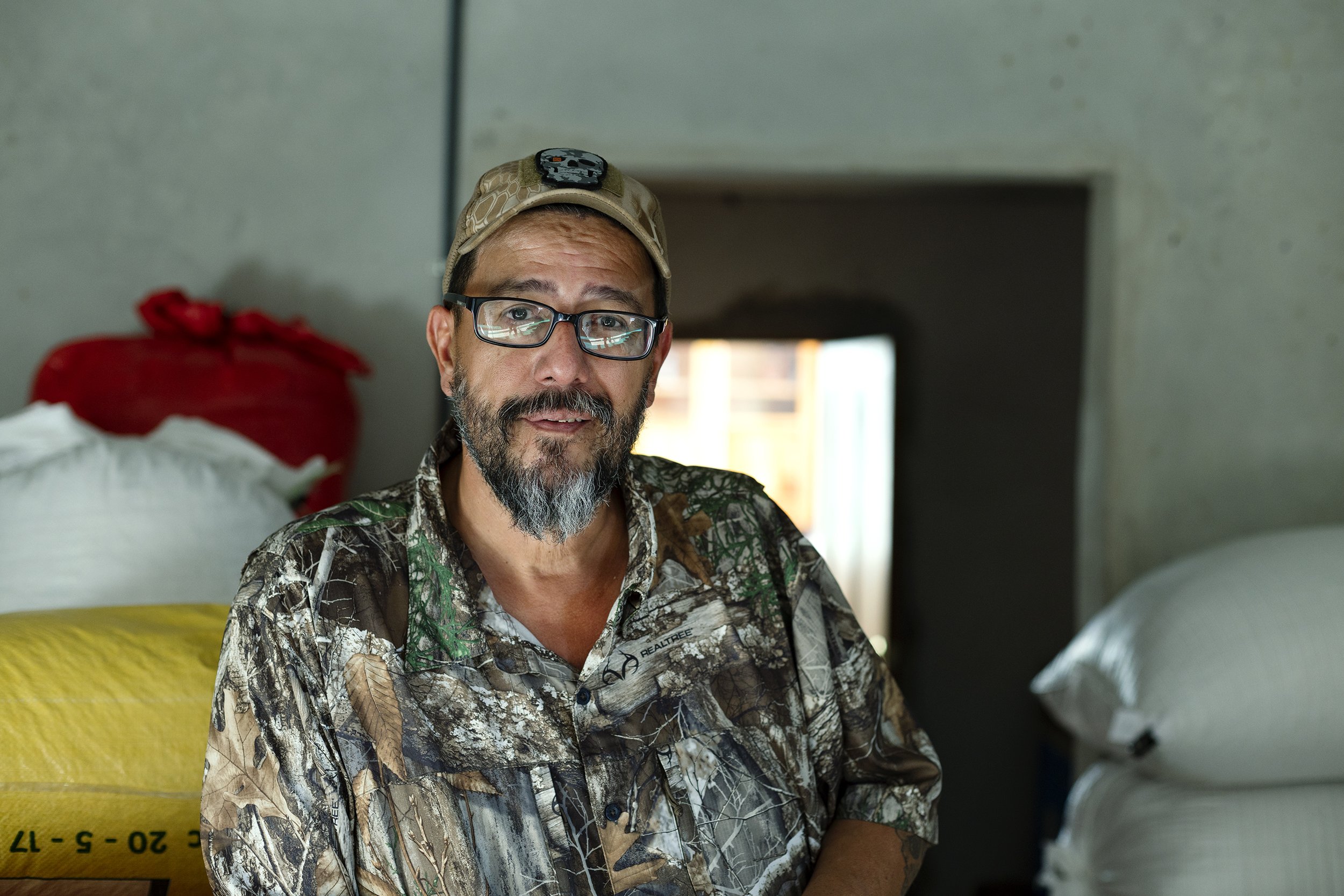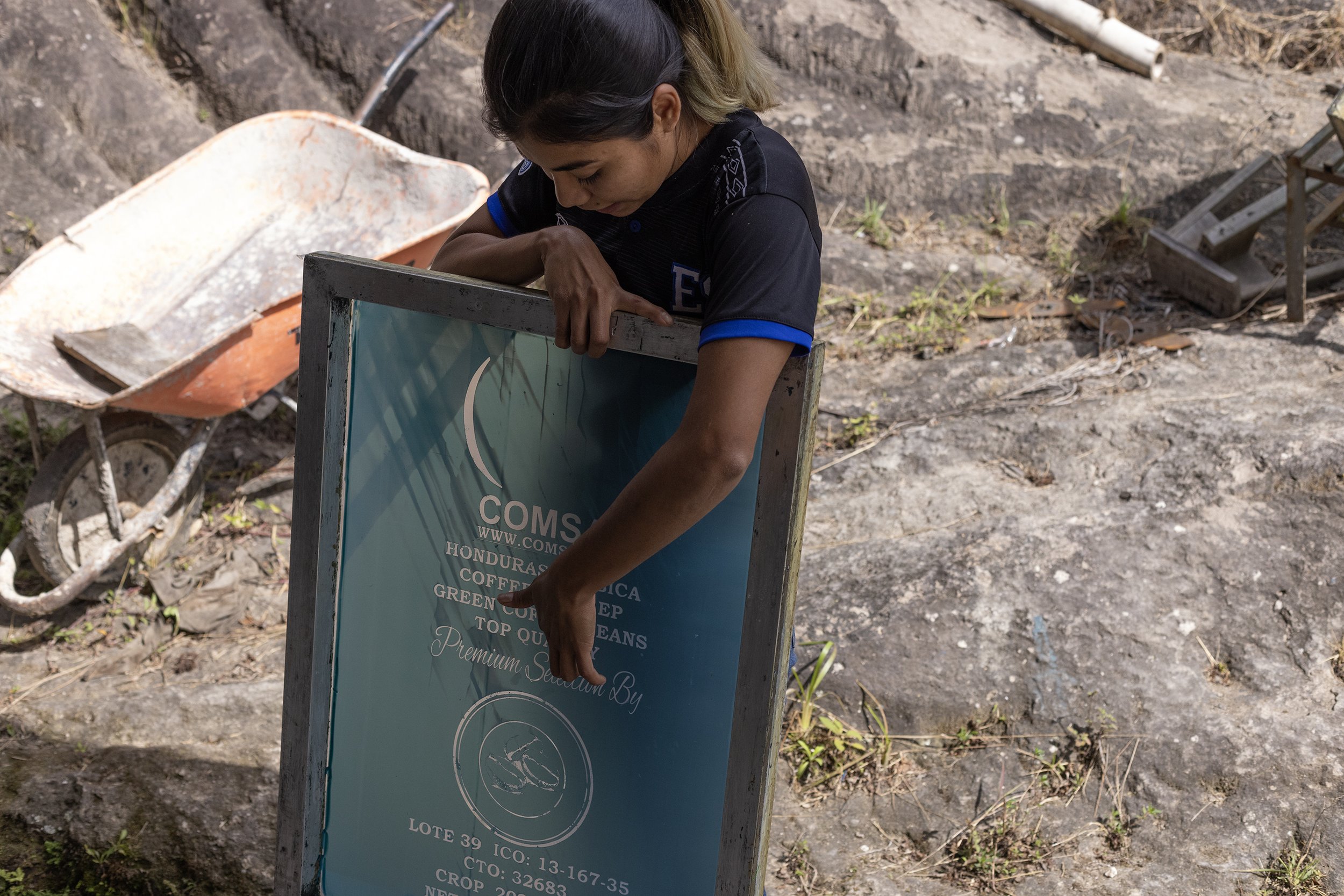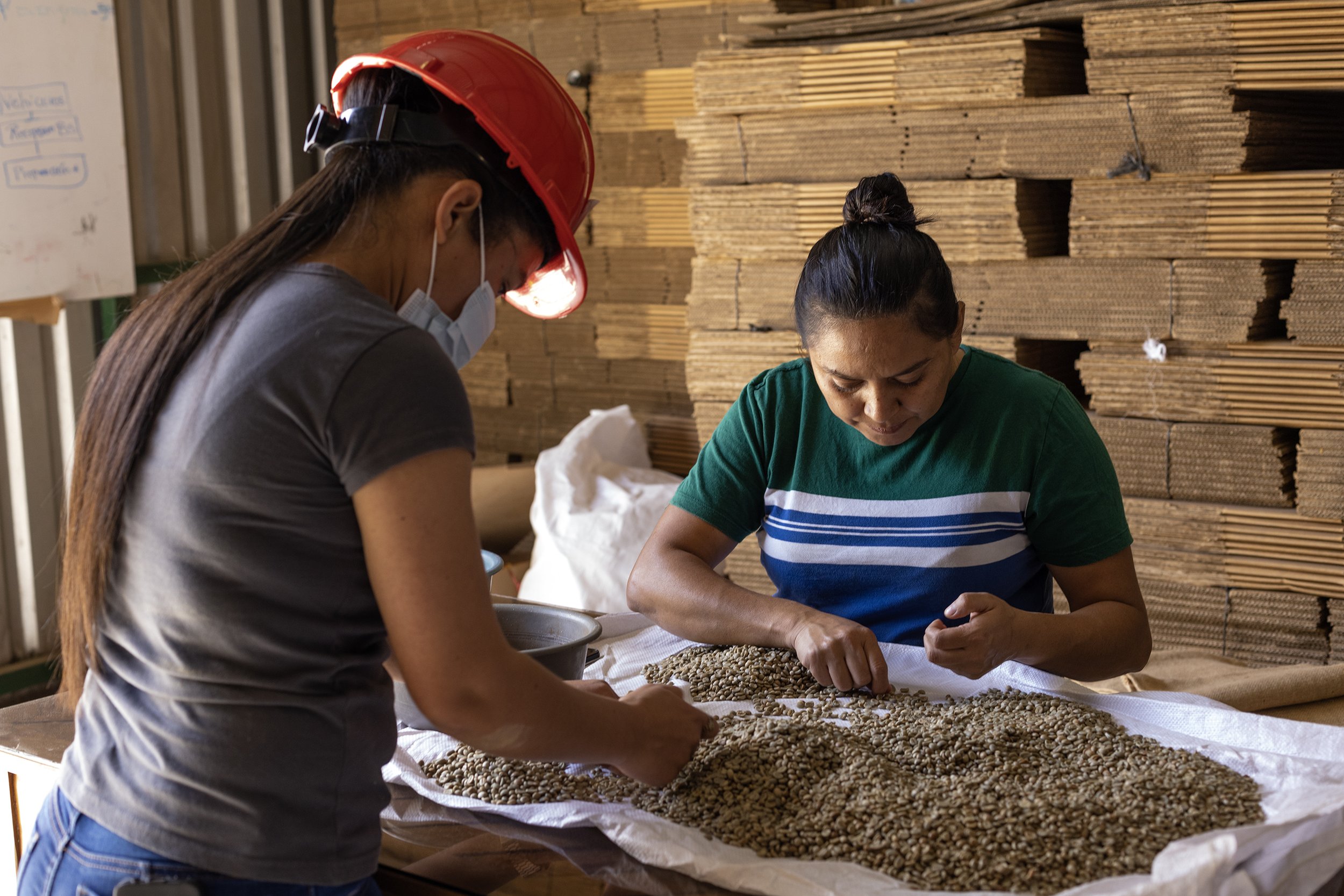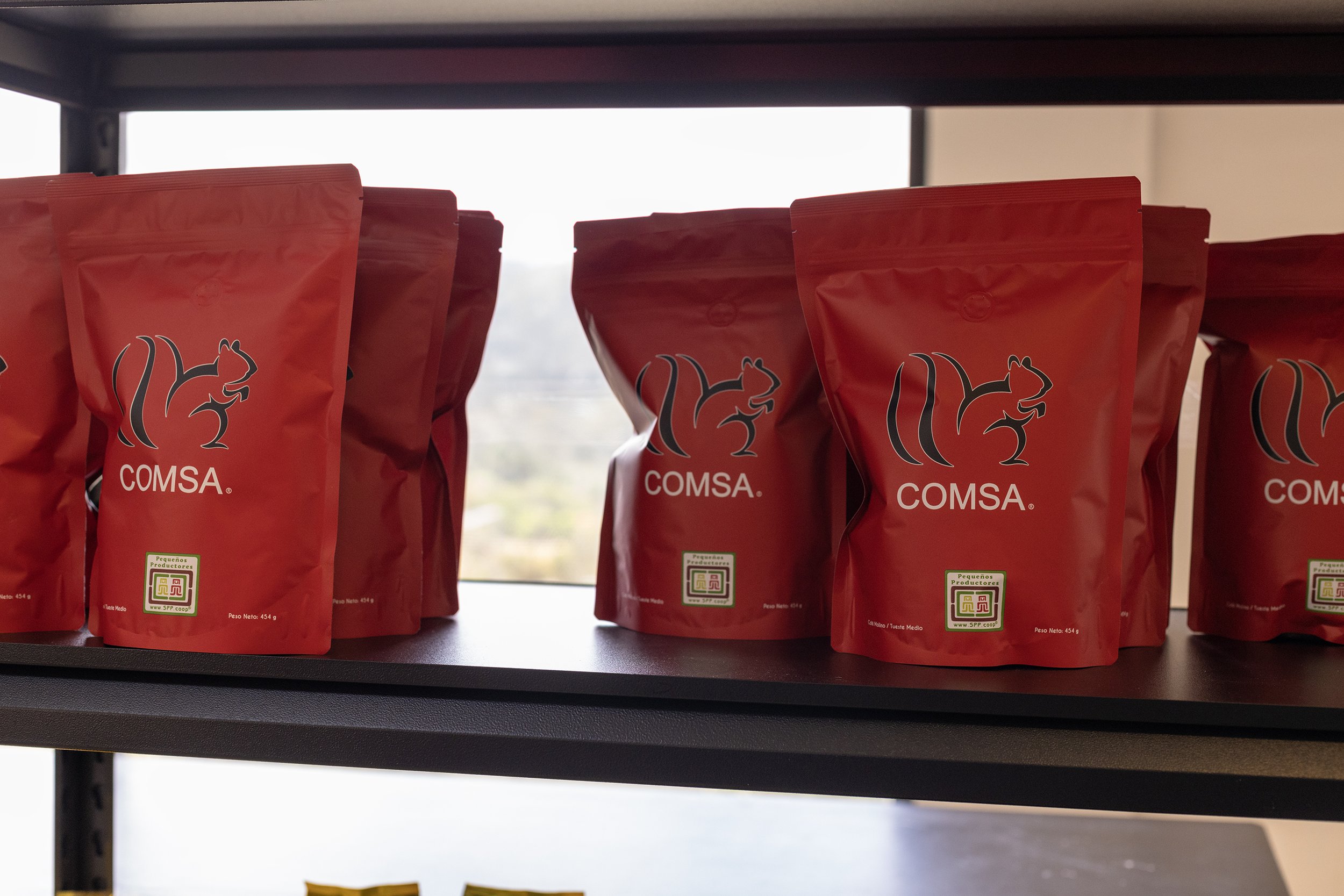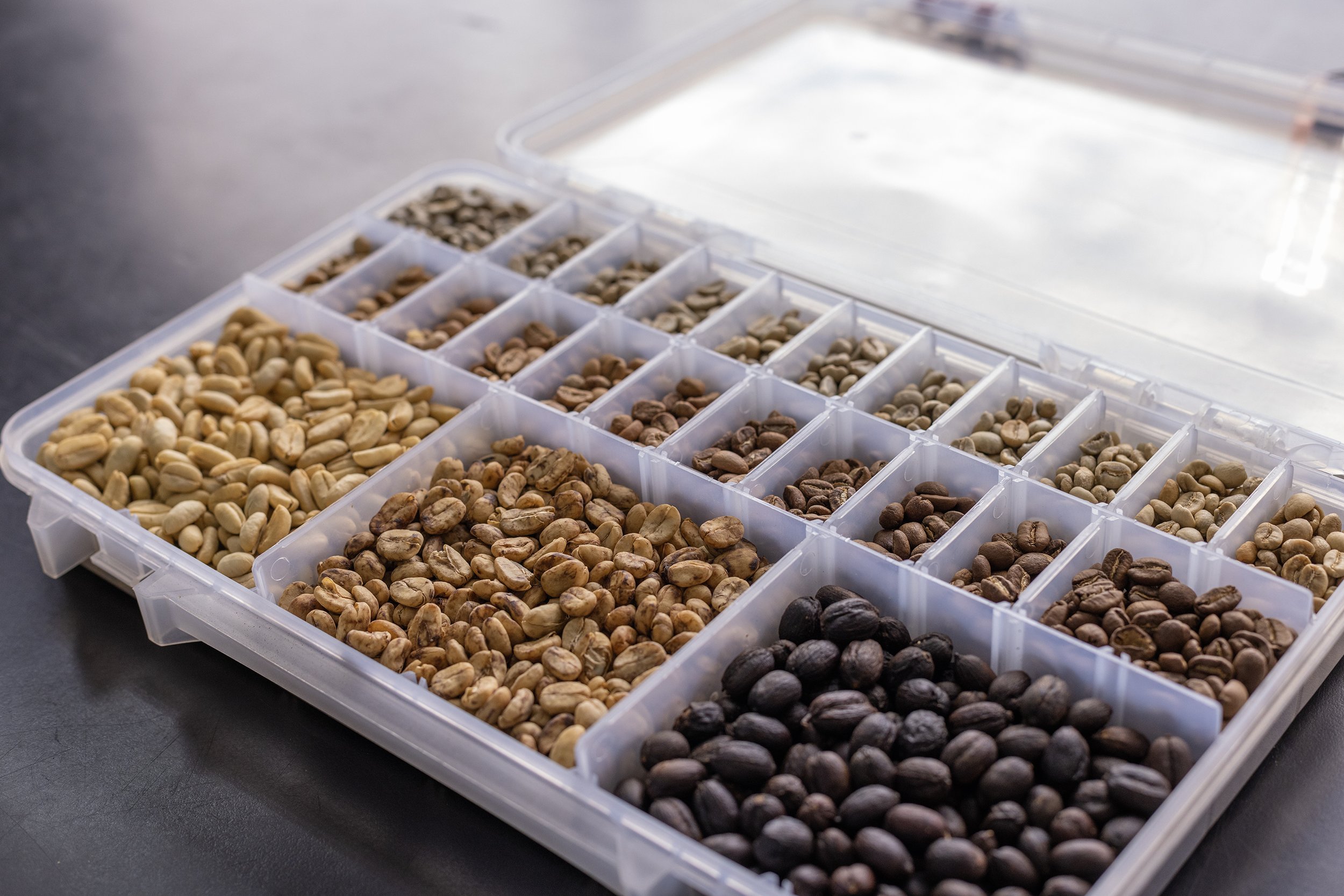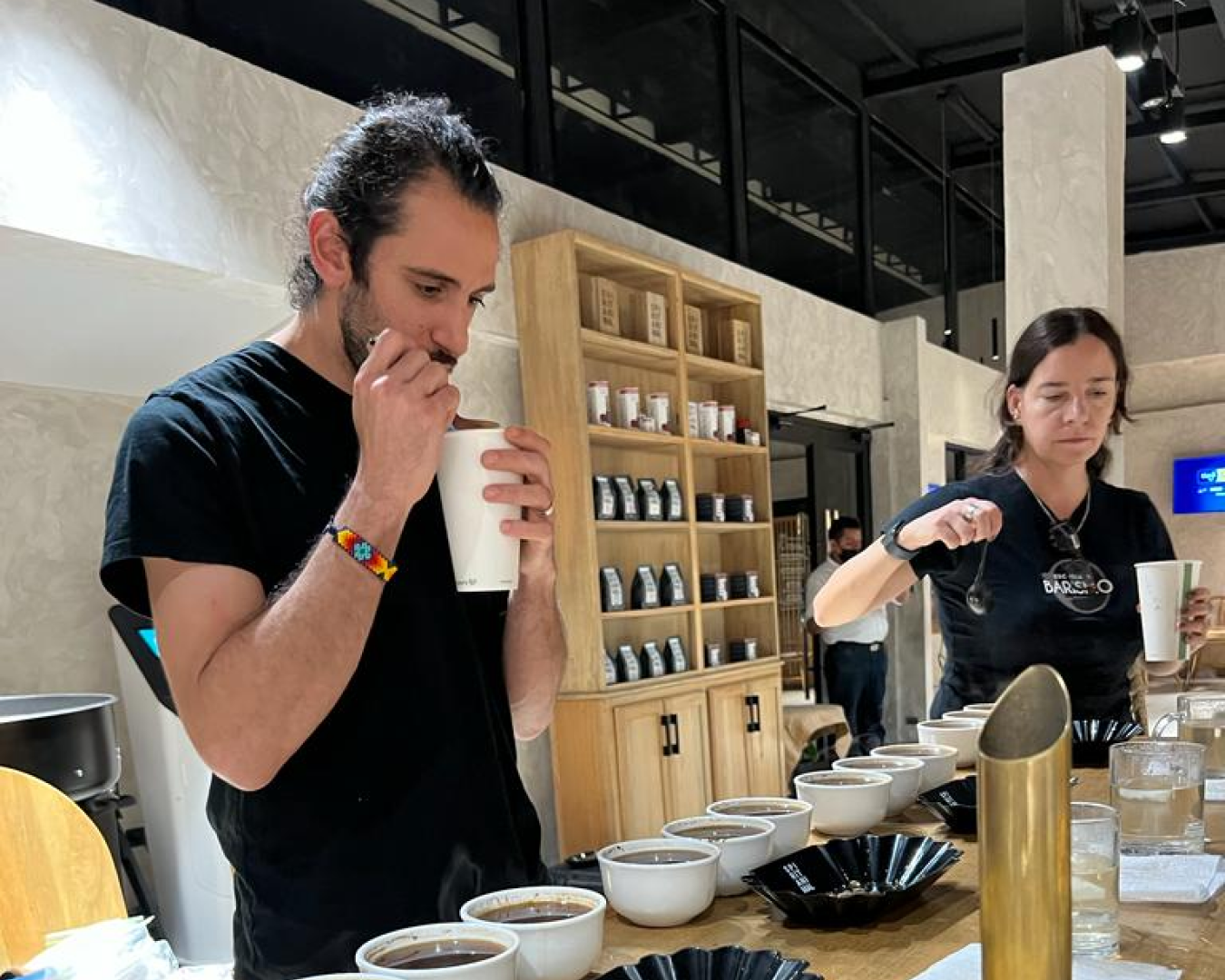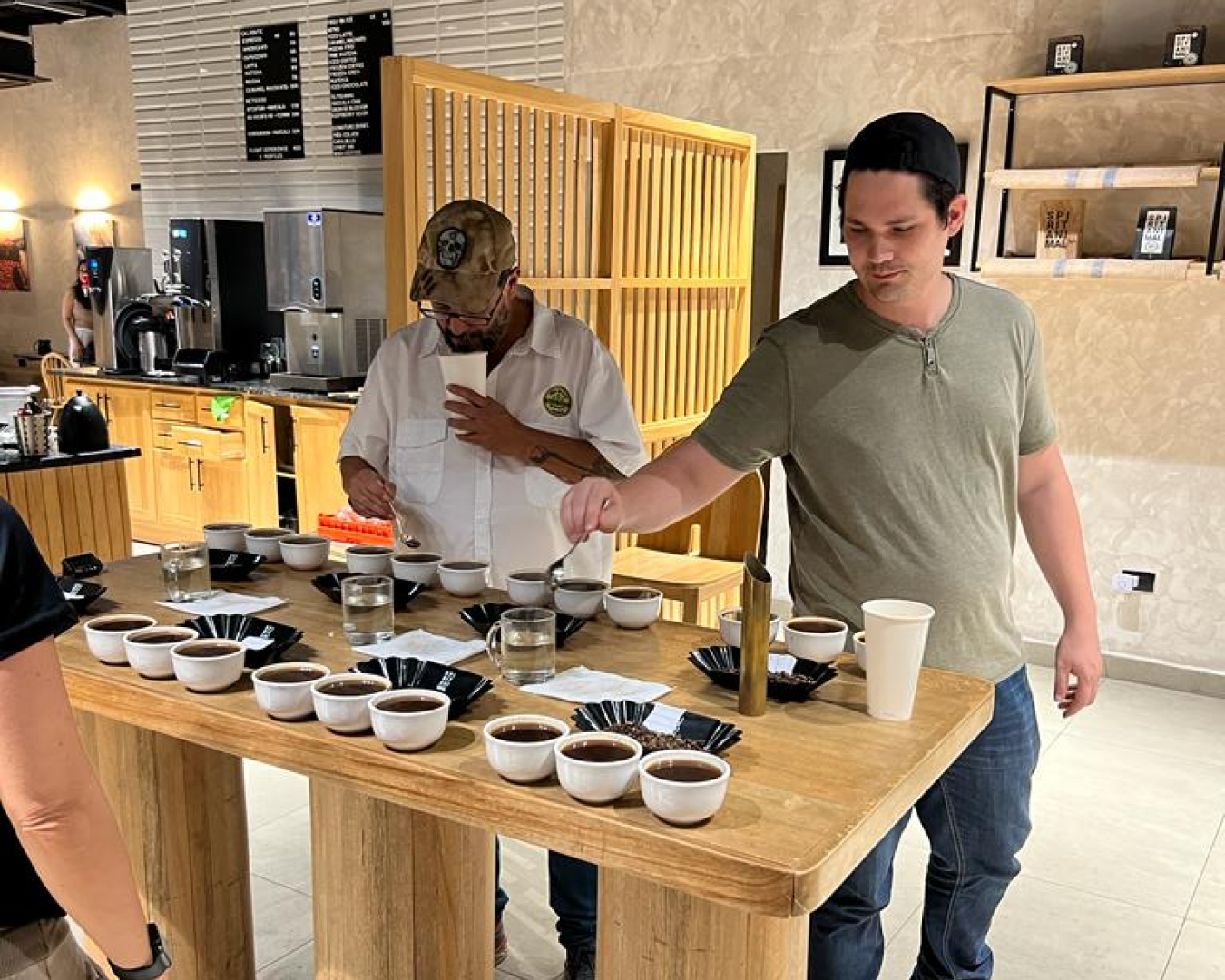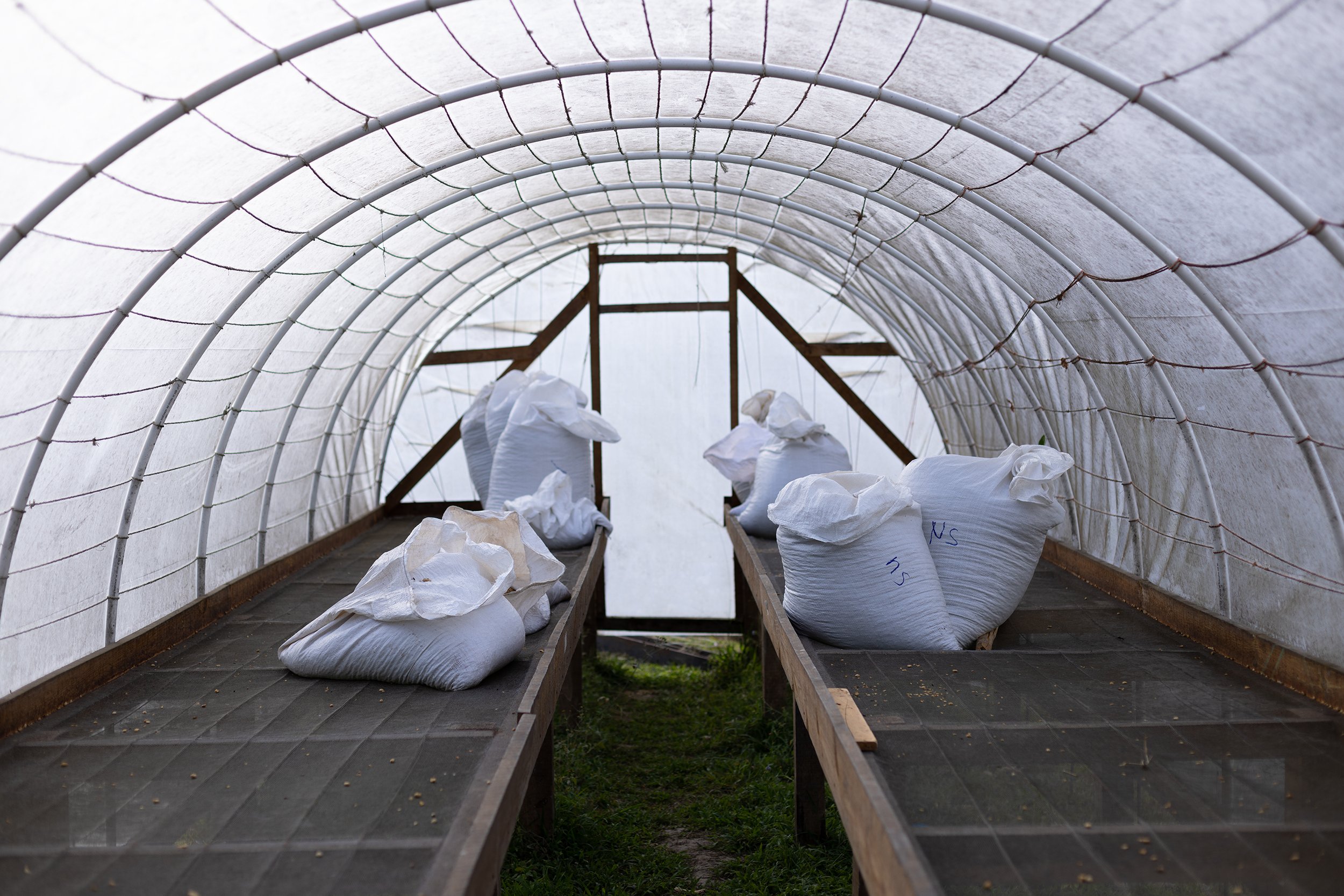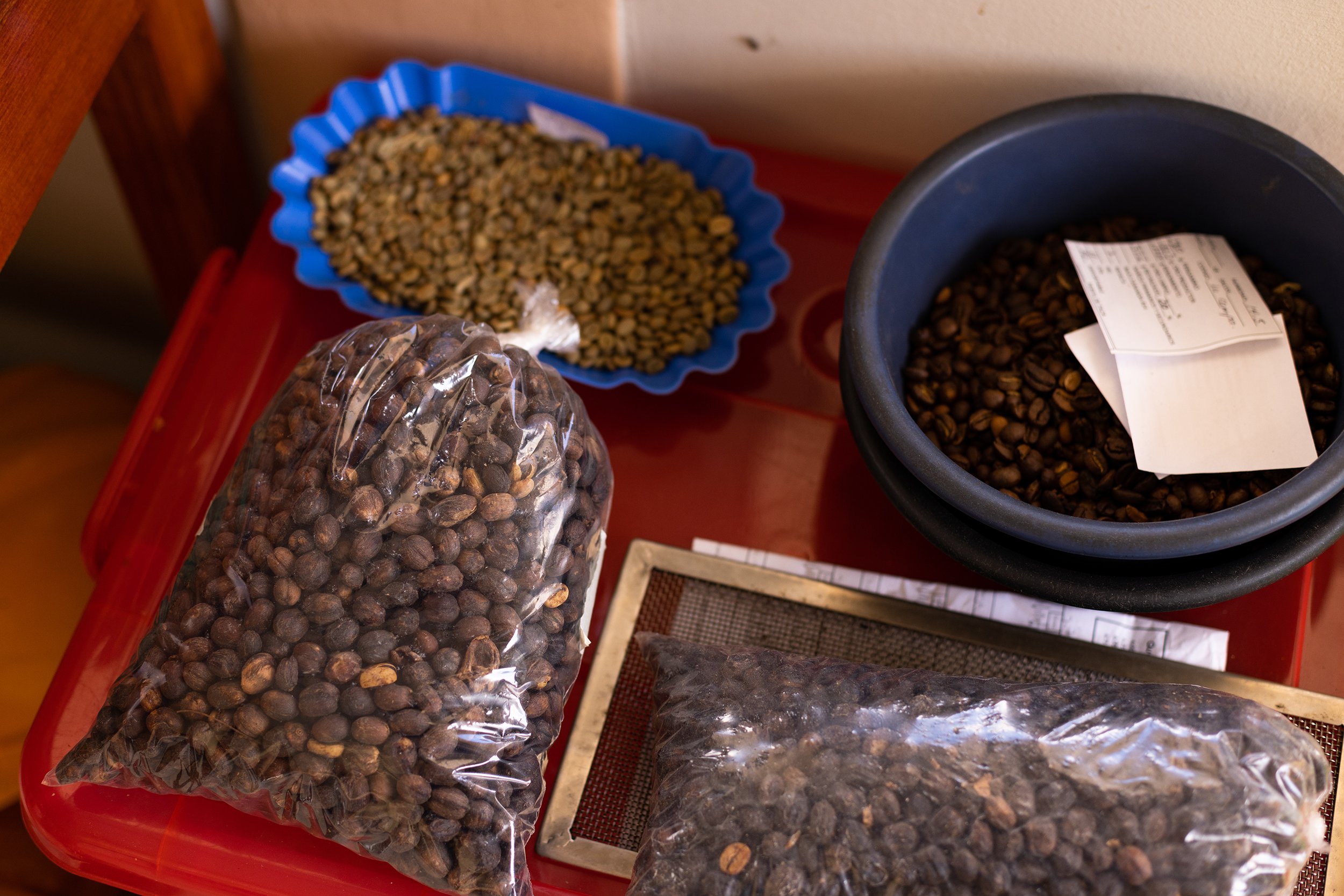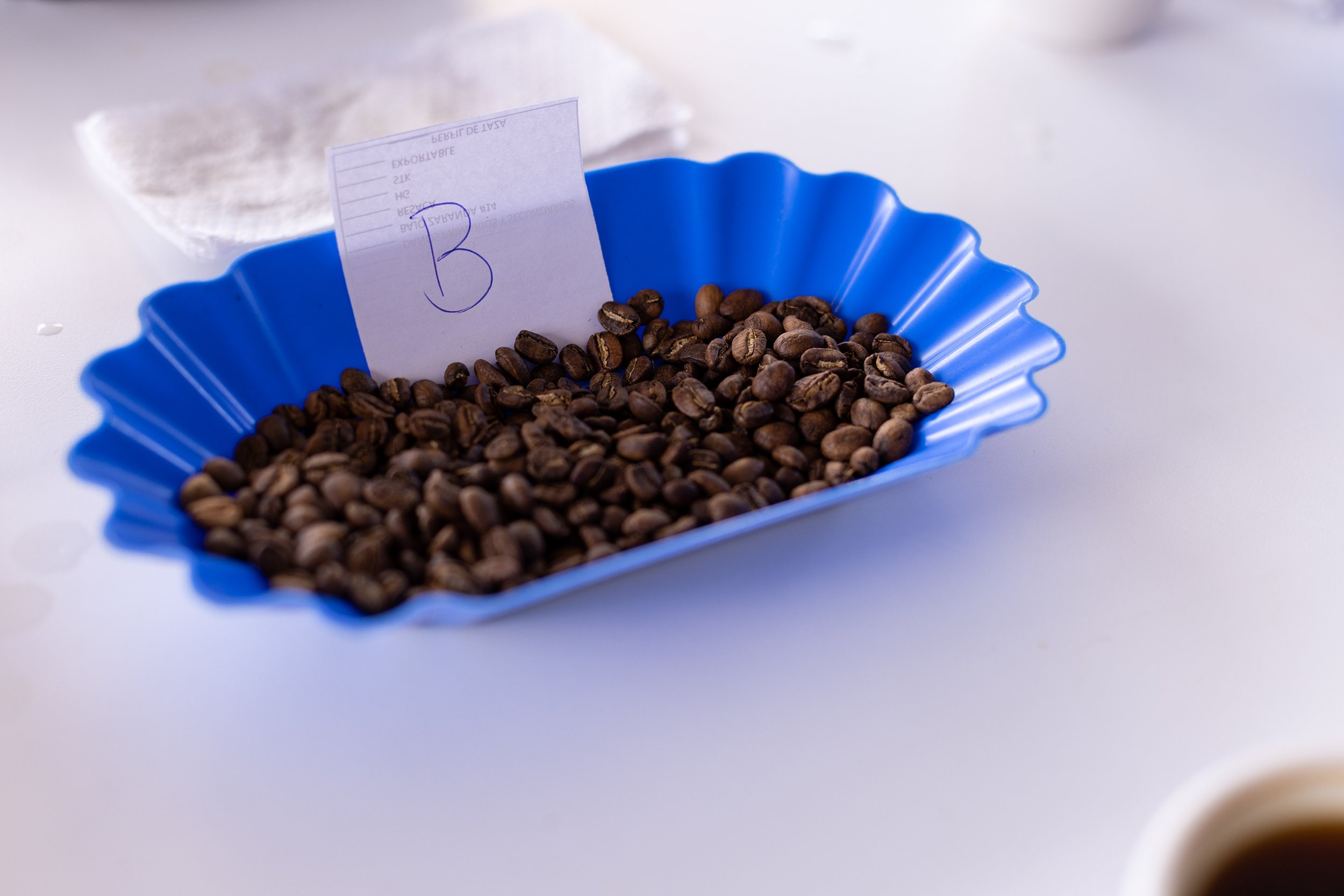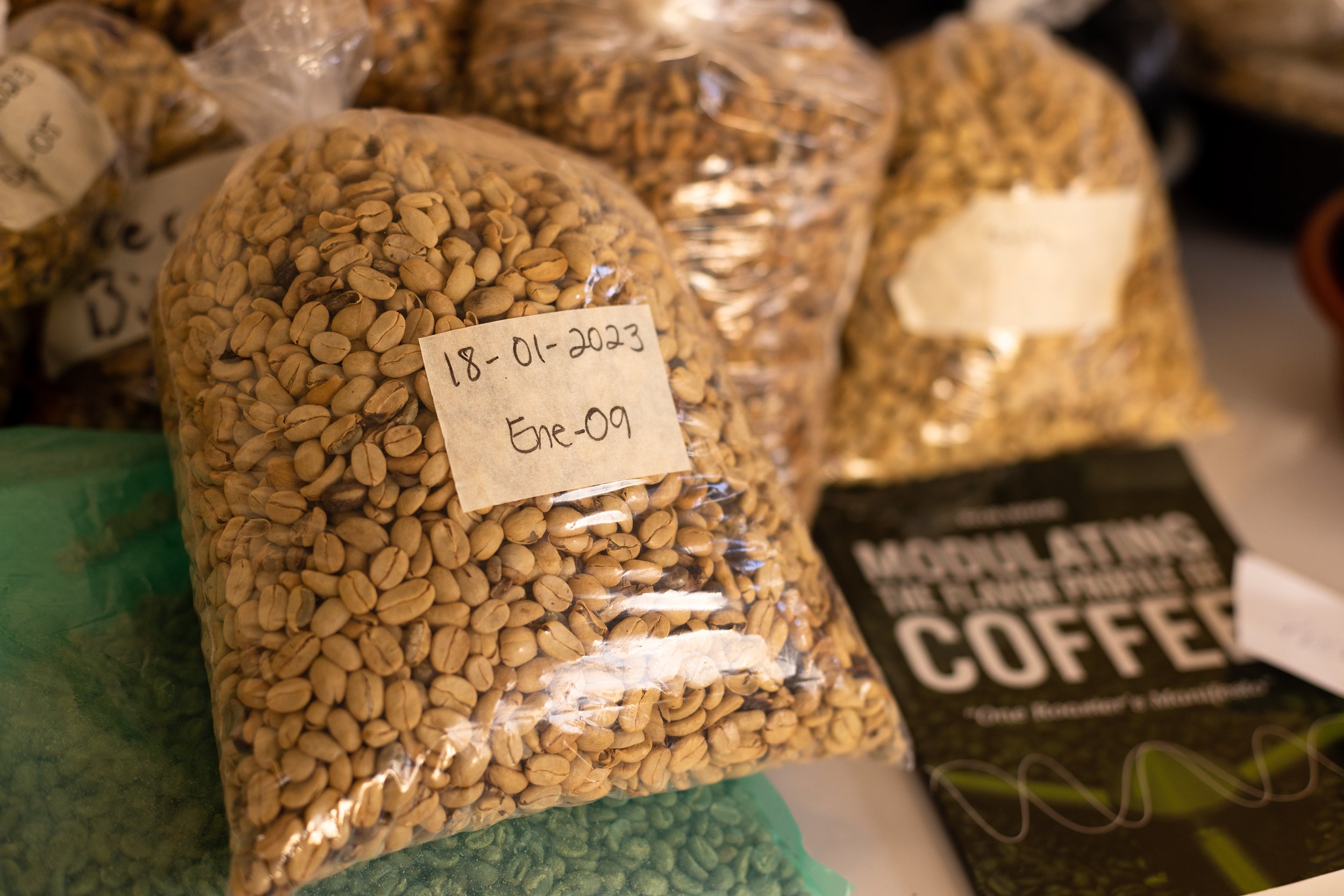The first part of our journey through Honduran coffee lands was filled with mostly new faces, which was a great opportunity to get a sense of how our producing communities are doing.
However, the second stretch of our journey focused on catching up with our producing partners to check in on this year’s harvest and our reforestation project at COCAEER! Read on to learn more about our visit and the new selection of coffees you can expect from this year’s harvest.
THIRD STOP: OCOTEPEQUE
Catching up with old friends
Our next destination was Ocotepeque, where we would spend a few weeks catching up with long-standing producing partners! Upon arriving, we met up with Arnold Paz, one of our friends, and farming & quality control partners, Samuelito Fernandez and Nelson Dominguez for a cupping session to re-analyze the coffees from the previous harvest & calibrate for the upcoming cupping season. Tasting year-old coffees tells us a lot about the practices at our partner’s farms and the quality of their work. Bottom line is, we’re eager to share these coffees with you all; we’re certain they’ll just build up the excitement for the new harvest to come in a few months’ time!
After cupping (and a quick baleada break) we drove down the road to Don Orlando’s farm. While the visit was a relatively short one, our team was able to check in on the new harvest, meet the new collaborators at their farm, and learn more about the Bird Corridor. This corridor is a designated area filled with fruit trees for the local fauna to thrive, which reflects Don Orlando’s commitment to biodiversity preservation on his farm!
While the team was out exploring the farm, Andros stayed behind to chat with Aida Escolán, another local producer who we’ve been working with for years. In the coming days, we would also visit her farm, to plan out this year’s coffees. She keeps large sections of her farm, Las Gravileas, preserved as old pine forests to support the health of her coffee production and the environment.
We are incredibly excited to deepen our work with her. She’s a role model for those around her, taking on financial and business loads to help her family and community thrive. As her needs and abilities evolve, she requires more security in her seed-to-cup journey, and we’re happy to provide that by sharing her coffees with coffee lovers and roasters around the world. This year we will have a special lot that is being prepped by Don Orlando himself at his mill!
The following days were filled with more partner gatherings and farm visits! We were able to drive up to Erik Garcia’s farm to check out their farm and diversification initiatives - banana and cardamom plantations mixed in with native tree species that have been planted as part of Tiny Carbon’s pilot project. After the short hike through the farm, Yeny Valenzuela, Erik’s wife, dished out a delicious soup, warmed on a woodfire grill! It was just the pick-me-up we needed to continue our journey!
Once we were back in La Labor, Ocotepeque, we stopped by to visit Don Selin at his nursery! Selin has been a role model for the community for years, being involved in La Labor’s development and community reforestation. Aside from that, Selin carries on his family's farming tradition with admirable dedication, taking care of not only his own land but also that of his family.
Overall, we spent our time catching up with our partners, identifying their needs, and negotiating price and logistics agreements. We were also happy to meet some new friends at COCAMOL, the first coffee cooperative in Honduras, and CAFESMO, an up-and-coming coffee wet mill focused on super specialty coffees, and CAFICO, a specialty coffee company with a lot of heart. We’re excited about the new opportunities to collaborate with our new friends and find ways to grow together.
Our commitment to the sustainability of our community and our environment
Aside from meeting up with both new and long-standing producing partners, we were beyond excited to see the progress of COCAEER. COCAEER is a joint partnership with several of our farmer partners and will become the site of a mill where local producers will be able to process their coffees and maintain high traceability & quality standards all along its journey.
Additionally, the land surrounding COCAEER has become the site of our reforestation pilot project alongside Tiny Carbon. Earlier this year, we planted 5,000 trees of various native species, including pine, cedar, walnut, liquidambar, and more. It was great to see how these trees have been developing and our goal is to give back to the land for the coffee we receive and establish a new standard for regenerative agriculture & practices.
To ensure the quality of these agroforestry practices, we visited the FHIA (Fundación Hondureña de Investigación Agrícola) and decided to partner with them to acquire certified seeds and plants for our reforestation initiative. This partnership ensures that we use only high-quality seeds and plants while supporting FHIA's work discovering new plant species and improving agricultural production throughout Honduras.
We’re excited to see the impact of their efforts in the future!
FOURTH STOP: SANTA BARBARA
Visiting Arnold Paz
From Ocotepeque, we drove to Santa Barbara to visit Finca San José. It’s always an invaluable experience to chat with Arnold Paz and deepen our knowledge about coffee, new practices, and green bean quality. Arnold's expertise in the field is exceptional. His insights on coffee science are a gold mine of information. We are always grateful to be able to gain first-hand knowledge of coffee science and the process of green bean analysis from Arnold. Spending time with him though also gives us valuable insights into the daily life of a coffee farmer, especially one focused on continuous improvement. We left Finca San José with a newfound appreciation for the hard work and dedication that goes into producing the perfect cup of coffee.
Rounding out our journey
After a few weeks of traveling around Honduras from farm to farm, we reached full circle and returned to Marcala. We interviewed Rodolfo, the CEO at COMSA, and visited their local school.
COMSA's school is an exceptional place that follows the philosophy of Glenn Doman intended to help children with brain trauma injuries catch up and learn, so they can live a normal life. However, Rodolfo took it a step further by evolving the idea to include non-injured children as well. The results are truly astonishing, with children developing incredible emotional and intellectual capacity.
What makes Comsa's story even more remarkable is that everything they do to help their children is done through coffee. As a result, COMSA has become a leader in this field, with a philosophy and vision that aligns closely with ours.
We left Marcala feeling inspired by the passion and dedication we witnessed at COMSA's school. It is heartening to see organizations using their success to make a difference in the world and help children reach their full potential. We are excited to be part of this story and support this work in the community through coffee!
Our friends from abroad
As rewarding as the trip had been up until this point, our journey didn’t stop there. After some well-deserved rest days, we had the pleasure of hosting Laura Cabrera, a SCA trainer from Malaga, Spain who shares our passion for specialty coffee and transparency in the industry. She is someone we value and want to learn from and can’t wait to collaborate with her in the future.
In addition to Laura, we met with Andrew Delgado, another SCA trainer in the states and owner of Dynamic Coffee Roasters, a roaster & SCA training campus in Pittsburgh. As a Honduran with experience working directly with his own farmers, he resonates with our ethos.
Our focus is on building relationships with farmers and providing personalized services that prioritize their needs. Working with people like Laura and Andrew, who share our values and commitment to excellence, is essential to our mission. We’re looking forward to partnering with them to promote the wonders of Honduran coffee.
THE FUTURE’S LOOKING BRIGHT
We value trips like this because it allows us to connect with people and organizations that share our values. It’s our mission to advocate for producers and ensure that they receive fair prices for their coffee
During these months, we prepared and sampled over 200 coffees, met with new and longstanding partners that share our mindset, and committed to several lots for our producers! After countless cuppings and were thrilled with the quality of every coffee.
Our hard work over the last six years is paying off, and we're excited about the partnerships we've developed during this time. The changes we are seeing in our farming partners are real and we’re excited to continue on this growth journey with them. The next steps are exciting, but more so because we are all committed to taking them with the same values at heart. Knowing our work is driving positive change in our homes & communities.
We're eager to continue building relationships with those who share our values.

